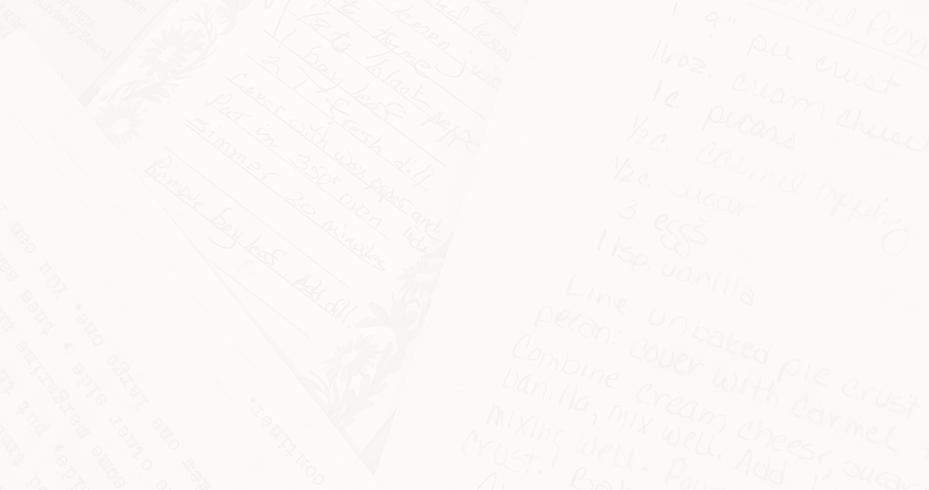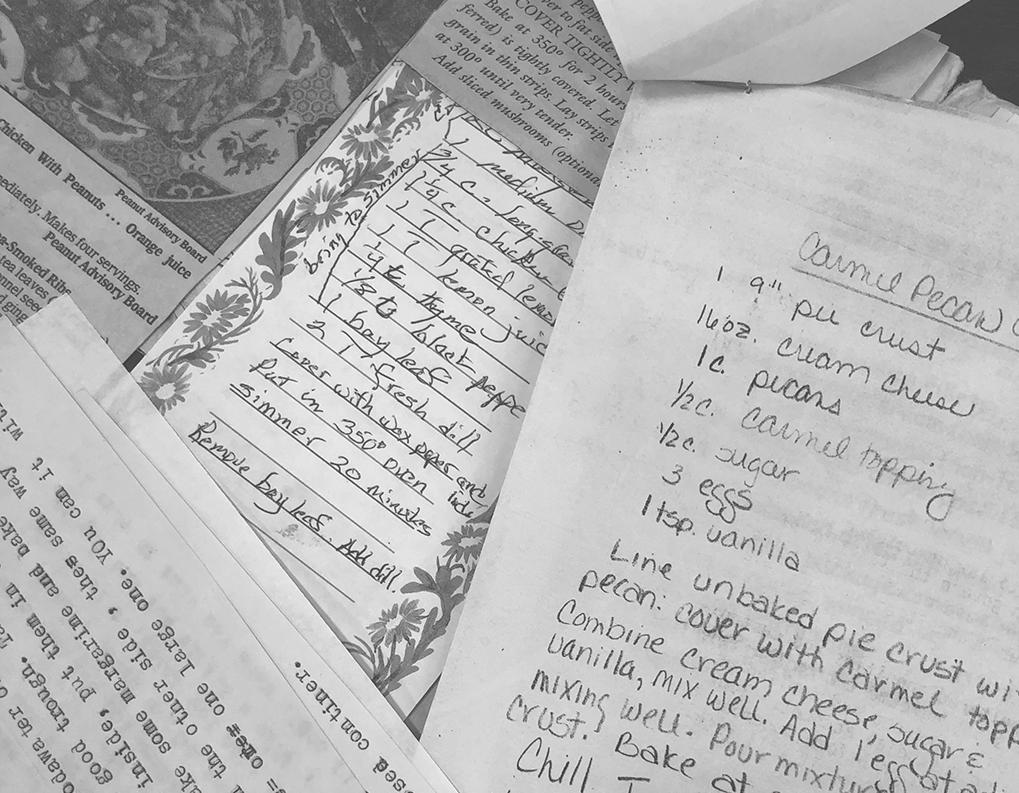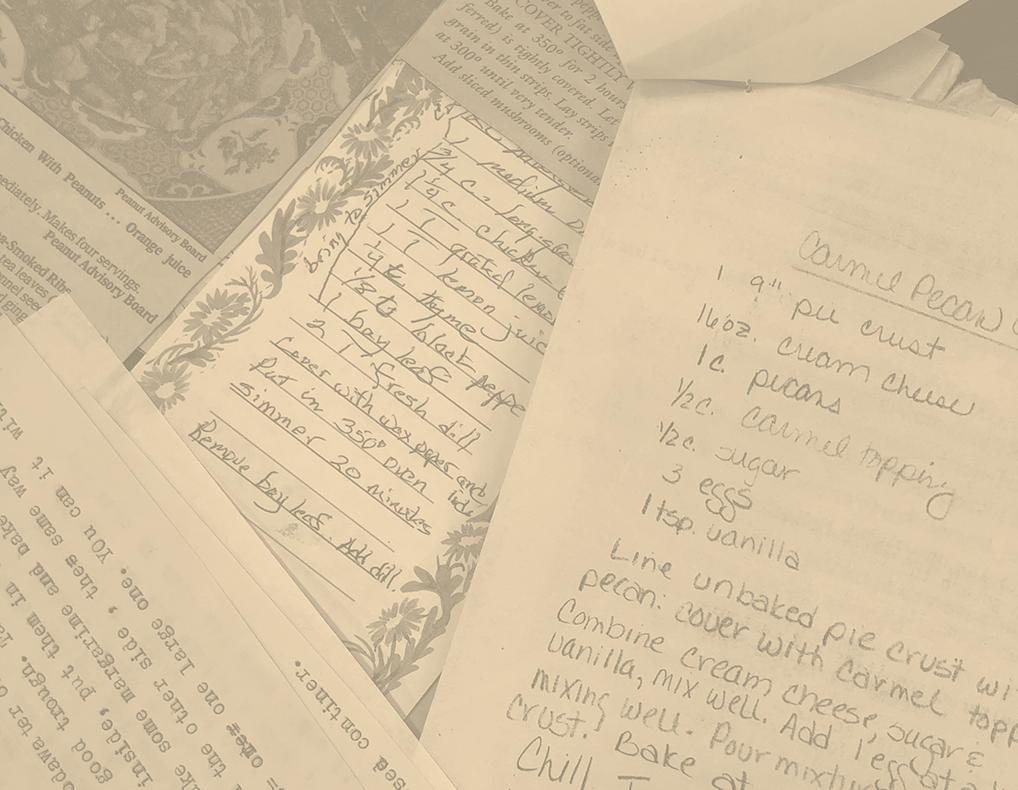The Jewish Press
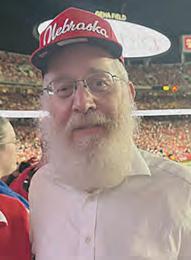
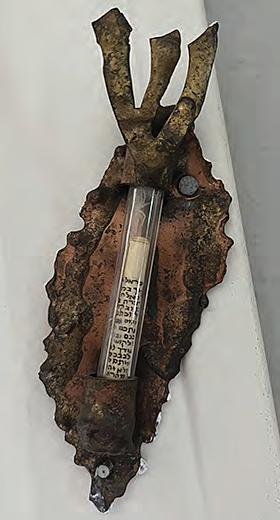
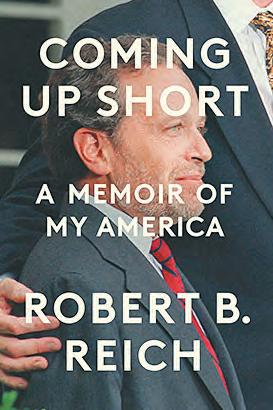




MORRIS LEVY (1916–1923)
The Father of the Omaha JCC
Following Samuel Ravitz, who helped unite Omaha’s Jewish community, Morris Levy carried that unity forward. As the next Federation president from 1916 to 1923, he dreamed of a gathering place where Jewish life could flourish. That dream became the first Omaha Jewish Community Center, built three years after his passing.
When we tell the story of Jewish Omaha, we often speak of buildings, the JCCs that have stood as gathering places for generations. But before there was a campus or a cornerstone, there was a dream. And that dream belonged to Morris Levy.
Morris Levy came to Omaha from the East Coast and See Standing on their Shoulders page 3
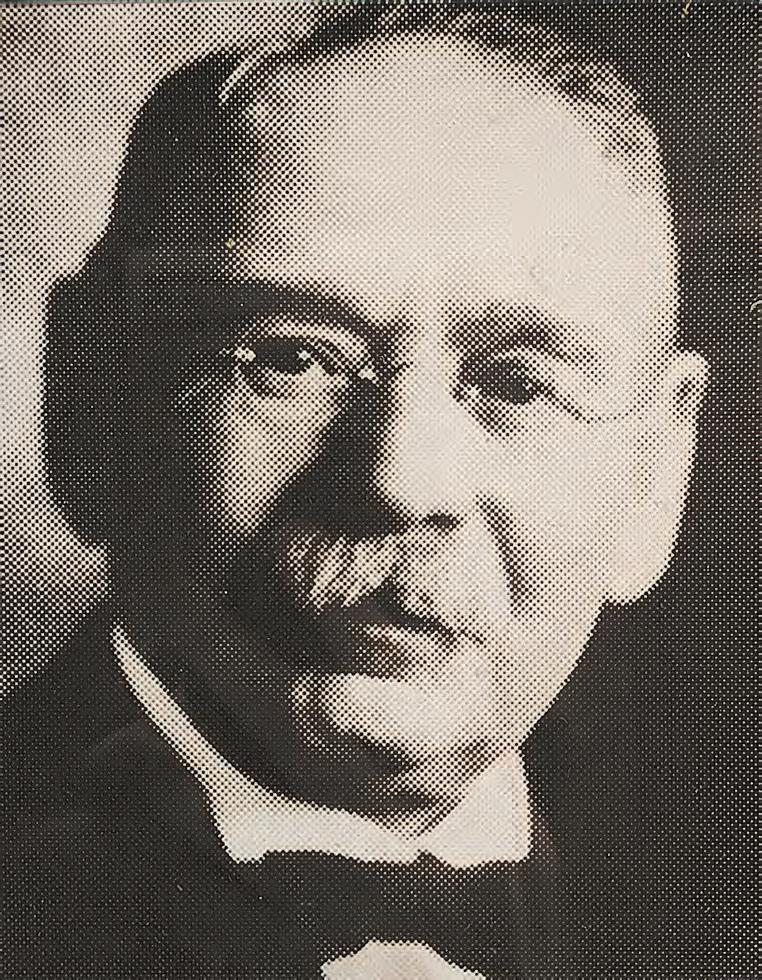
HEIDI HEILBRUNN NEEDLEMAN
JFO Assistant Director of Engagement and Education
Gather at the Jewish Federation of Omaha for a virtual “One Community
Read” with Rabbi Angela Buchdahl on Tuesday, Nov. 18 at noon in the Wiesman Reception Room as she talks about her recently-published memoir, Heart of a Stranger: An Unlikely Rabbi’s Story of Faith, Identity, and Belonging, with Abigail Pogrebin. Born in Korea to a Jewish-American father and a Korean Buddhist mother, Rabbi Angela Buchdahl is the first Asian-American to be ordained as a rabbi. She currently serves as the
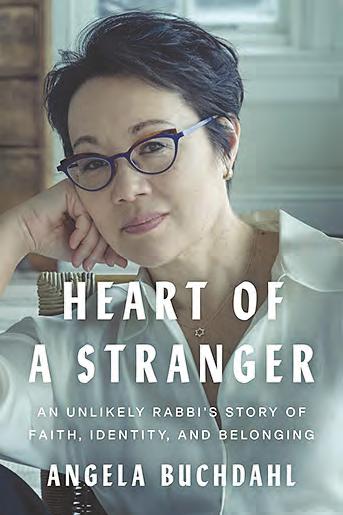
Senior Rabbi of Central Synagogue in New York City. In each chapter, the Rabbi and author eloquently shares pieces of her personal story, weaving thoughtful parallels between her Korean and Jewish families. With honesty and warmth, she intimately See Angela Buchdahl page 2
MORGAN GRONINGER
IHE
This November, the Institute for Holocaust Education (IHE) invites the community to honor the legacy of Holocaust survivor and artist Sofia Davidson (z”l) through two special events and a monthlong exhibition. Hosted in the Eisenberg Gallery at the Jewish Community Center, the Sofia Davidson Art Collection is presented in partnership with the Goldrich Family Foundation (GFF) and the IHE.
On Thursday, Nov. 13 at 7 p.m., the Institute for Holocaust Education will present an evening with artist Suzanne Horwich, the Consulting Curator for the Goldrich Family Foundation’s Sofia Davidson Collection. The evening will offer attendees an intimate look into the creative expression of Davidson, who shared her personal stories through art after the war. Please RSVP here: https://fundraise. givesmart.com/form/WSL7Jw?v id=1m921i
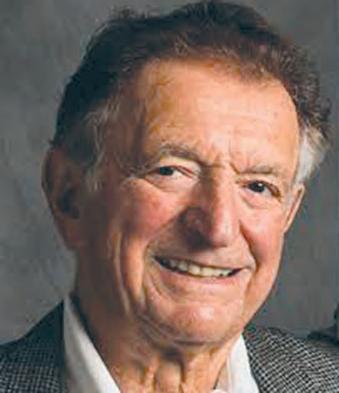
The following week, on Thursday, Nov. 20, IHE will continue the conversation during its Third Thursday Lunch & Learn program, featuring Suzanne Horwich alongside Helen Pankowsky, granddaughter of Sofia Davidson. Together, they will discuss Gutentag’s work and the enduring impact of Holocaust education through art. Please reach out to Scott Littky, IHE Executive Director, at slittky@ihene.org, to See Legacy through art page 2



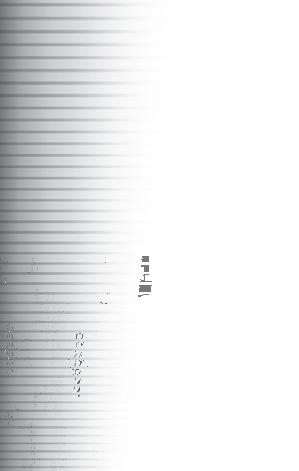


Ask an Enterprise Banker about our







Continued from page 1 receive the Zoom link.
Suzanne Horwich is the Consulting Curator for the Goldrich Family Foundation’s Sofia Davidson Collection. She is also the founder of Artist Giving Back, which partners with organizations worldwide that are meeting the primary needs of refugees such as food, shelter and medicine. AGB works to meet the emotional and creative needs of those in the refugee commu-
‘Write With Us,’ our small and intimate writing workshop (no need to be nervous) continues in the Fall. Upcoming workshops are scheduled for Nov. 13 and Dec. 11 from 5-7 p.m. in the Noshery at the Staenberg Omaha JCC. Register by contacting Jessi at jtaylor@ jewishomaha. org or Annette at avandekamp@jewish omaha.org. There is no cost to attend, although donations are always welcome.
nity, returning dignity and building community to refugee populations worldwide through art programming and art shows.
Helen Pankowsky, MD has dedicated her life to helping others find healing from emotional and psychological trauma through her work as a psychiatrist. She has been a pioneer in using holistic, alternative, and mind/body/spirit techniques in combination with traditional psychiatric and medical treatments. She has a private practice, teaches, runs meditation and energy healing groups, has written and published a book: Living Aware and Inspired, writes poetry, is a student of tai chi, and is an artist in various media.
These events are presented in partnership with the Goldrich Family Foundation (GFF), which was established in 1988 by Jona Goldrich to promote Holocaust education for current and future generations. Born in Poland and a survivor of the Holocaust, Goldrich built a remarkable life after the war- first in Israel, then in Los Angeleswhere he became a successful builder and a generous philanthropist.
Today, under the leadership of Melinda Goldrich, the foundation continues to expand its impact, producing educational films, collecting and sharing survivor artwork, and developing new technology-driven approaches to Holocaust education.
The foundation also funds housing and support programs for Holocaust survivors, Jewish summer camps, and at-risk youth initiatives in Israel. Since October 7, 2023, the GFF has deepened its commitment to combating antisemitism and supporting Israel during this critical time.
Through art, education, and memory, the Goldrich Family Foundation and its partners continue Jona Goldrich’s lifelong pursuit: to preserve truth, promote resilience, and build communities rooted in compassion and understanding.

If you have wanted to write your family’s story, that great American novel, or you have always wanted to try your hand at poetry, join us! Maybe you are already an accomplished writer, but you would benefit from being in a room with other writers. Perhaps you have convinced yourself you can’t write at all, but would love to try. Everyone, from absolute beginner to professional, is welcome to attend. We will provide the kosher snacks and the writing prompts.
Continued from page 1 communicates to the reader, the experiences that shaped her path to becoming the leader of one of the largest synagogues in the world. Following each story, Rabbi Buchdahl shares a d’var Torah (word of Torah), connecting timeless teachings to contemporary life in relatable ways.
Her inspirational book captures her journey of discovery and connection, highlighting the significant influence of one of Judaism’s most influential voices today. While her book is the extraordinary story of her personal experiences, it can also be considered a spiritual guide for everyday living. As a rabbi, Buchdahl is celebrated for her joyful approach and is a strong advocate for responsibility to each other, gratitude and faith. In addition, she is undaunted when it comes to presenting challenging topics.
During the Jewish Book Council program, she will join author Abigail Pogrebin, who regularly moderates conversations for The Streicker Center and Jewish Broadcasting Service. Her book My Jewish Year: 18 Holidays, One Wondering Jew was a finalist for a 2017 JBC National Jewish Book Award and she has written for The Atlantic, The Forward, and Tablet
The discussion between Buchdahl and Pogrebin marks the beginning of Jewish Book Month, the celebration of Jewish literature by the Jewish Book Council in the days leading up to Hanukkah. Marking the 100th anniversary of Jewish Book Month, this year’s observance will take place Nov. 13 to Dec. 13. Join the Jewish Federation of Omaha as we zoom this heart-
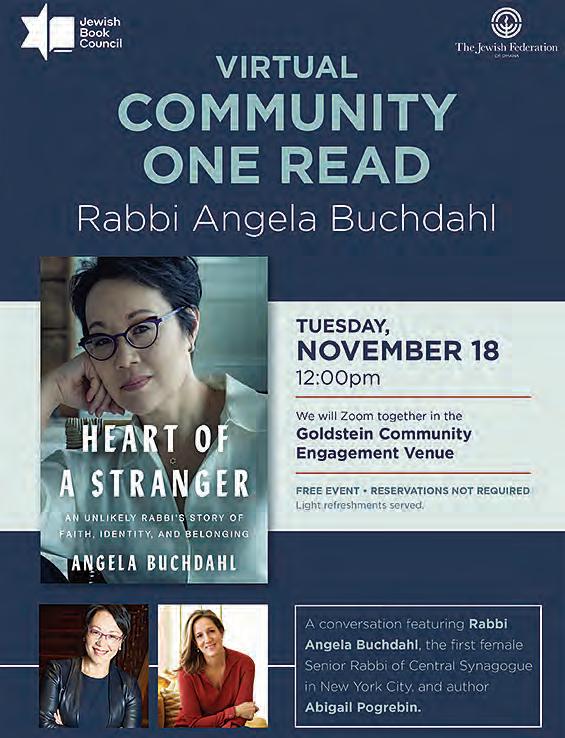
Continued from page 1
helped found the Nebraska Clothing Company in 1886 with two partners who shared his entrepreneurial spirit. Though born somewhere in the old country, the details of his early life have faded with time. What remains clear is that he became one of the community’s most devoted leaders, a man who worked tirelessly to turn vision into reality.
Morris and his wife Bertha made Omaha their home and raised their daughter Mildred, a Central High graduate. In 1900 Mildred married William Holzman of New York, who later joined Nebraska Clothing as secretary and treasurer and, after Morris’s death, became both company president and Federation president. The family’s leadership spanned generations, a true example of l’dor v’dor.
Morris Levy’s presidency of the Jewish Federation of Omaha from 1916 to 1923 marked a defining chapter in our community’s growth. Under his leadership, the Federation transitioned from the Associated Jewish Charities of Omaha to the Jewish Welfare Federation of Omaha, signaling a broader vision of service and unity. Board minutes from his tenure show a young organization managing just $371.78 in cash, yet already imagining something much greater, a Jewish Community Center.
On Feb. 8, 1920, at a meeting held in the Lynx Building downtown, the Federation voted to go on record in favor of acquiring a community center. By December 1921, that idea had taken root, and plans were underway to create an agency called The Jewish Community Center.
Sadly, Morris would not live to see his dream fulfilled. He died on July 23, 1923, in Perth Amboy, New Jersey, while still serving as Federation president. His funeral in New York City was led by Rabbi Stephen S. Wise, one of the era’s most prominent rabbis, who called him a faithful Jew, a loyal American, and an untiring worker for the good of his country, state, and city. Rabbi Wise went on: “He gave to his adoptive country, state, and city uttermost love, loyalty, and devotion… I believe he will be long remembered as one of the men who built Nebraska, a state prizing the highest and finest things in life.”
On the day of his funeral, both the Nebraska Clothing Com-
pany and the Federation closed their offices in his honor. Two months later, a memorial service at Temple Israel in Omaha paid tribute to a man whose generosity and vision had shaped the community’s future.
Three years after his passing, in June 1926, the first Omaha Jewish Community Center opened its doors at 20th and Dodge. It was built at a cost of $300,000, a remarkable achievement for its time. In the archives of the Nebraska Jewish Historical Society lies a document believed to have been written for that dedication. It captures Levy’s spirit perfectly:
“Consider Morris Levy, if you will. Here was a man who had worked long and hard and had succeeded in accumulating a share of this world’s goods. He had reached that place in life when he could sit back in his easy chair and watch the world go by. I wonder if you know how day after day, he could be seen walking up and down the streets of Omaha, good weather and bad, with that ever-present cane which was so much a part of him, calling upon others to do their duty to the end that the Federation might have the funds which it so sorely needed. And all the time he yearned for, and dreamed of, a home of our own… Time after time, attempts had been made to make such a dream come true, but each time, the attempt failed. First it was the earthquake and then it was the war. But finally in 1922, when he could brook no further delays, he made the magnificent contribution of $50,000 that served as an inspiration to the rest of the community… Truly, it has been said that his generosity, his vision, and his interest in our community made the Jewish Community Center possible.”
Today, nearly a century later, every child who learns to swim, every family who celebrates a simcha, every senior who finds friendship in the halls of the JCC, all are part of Morris Levy’s legacy.
So when you next pass through those doors, pause for a moment. Think of Morris Levy, the man who walked Omaha’s streets with his cane and his conviction, who refused to let his dream fade, and whose faith in community built a home for us all.
JFO Foundation Executive Director

An unprecedented surge in philanthropy defined 2024, with $1.3 million raised in just three months through The Foundation’s 4Q Endowment Incentive Program. This effort brought 23 new endowments to life, strengthening organizations such as the Jewish Community Relations Council, South Street Temple, Rose Blumkin Jewish Home, Jewish Federation of Omaha and Lincoln, Jewish Business Leaders, Beth Israel, Jewish Family Service, Chabad, and Tifereth Israel Synagogue. These endowments now support essential priorities—combating antisemitism, funding scholarships, maintaining cemeteries and facilities, supporting JFO’s Annual Campaign and enriching youth and senior programs—ensuring a vibrant and secure Jewish future.
Now, the momentum continues. The Foundation has launched a new $150,000 Endowment Incentive Pool, offering a 25% match for new or increased endowments established this year—until funds are depleted. It’s a powerful way to amplify your impact and secure the causes you care about most.
A legacy gift through an endowment is more than a financial contribution—it’s a statement of values and vision. As Mike Erman shared, “An endowment ensures that future generations will maintain a connection to their family history.”
Whether you wish to honor loved ones, sustain vital community services, or safeguard Jewish life for generations to come, our team will guide you through every step. As Susie Norton reminds us, “You don’t need to be wealthy to create a legacy gift. The process is simple—and deeply meaningful.”
Join the growing number of families investing in our Jewish future. Together, we can build a lasting legacy of generosity, connection, and continuity.
Don’t wait—the $150,000 match pool is limited. Contact the Jewish Federation of Omaha Foundation today, 402.334.6466, to start your legacy.
MARK KIRCHHOFF
JFO Community Engagement & Education
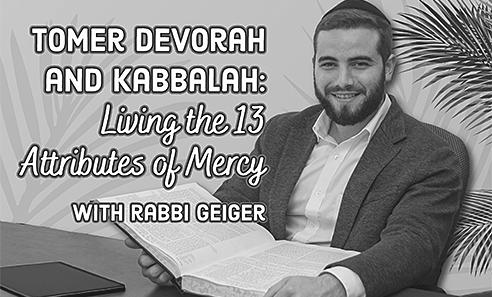
Rabbi Mordechai Geiger, Senior Rabbi at Beth Israel Synagogue, will begin a learning series focused on the 16th-century classic mystical work by Rabbi Moshe Cordovero, Tomer D’vorah, (The Palm Tree of Deborah), Following this initial session on Nov. 9th, subsequent sessions will be held the first Sunday of every month, beginning Dec. 7th, The meeting time for all is 3-4 pm at the Jewish Federation of Omaha. No registration is required.
Tomer D’vorah simplifies lofty spiritual ideas into practical lessons for everyday living. The title itself, inspired by the biblical prophetess Devorah, suggests strength, resilience, and moral clarity. Rabbi Geiger explained that “The work sheds light on the ‘Thirteen Attributes of Mercy’ described in the Torah—qualities such as patience, forgiveness, and generos-

ity—and shows how we can imitate them in our own lives.”
Many will recall Rabbi Geiger’s interactive style of teaching from last year’s Duties of the Heart. “The goal of these sessions is not academic mastery but personal growth. You don’t need to be a scholar to appreciate the book. Instead, it invites you to reflect, ask questions, and try applying the teachings in real life” Rabbi Geiger shared.
The teachings of Tomer D’vorah remind us that spiritual growth is accessible to everyone. With its practical lessons on mercy, kindness, and personal refinement, this classic work has the power to transform our relationships and elevate our daily lives.
`If you’ve ever wished to live with greater compassion and clarity, this class is the perfect place to start. Rabbi Geiger is the perfect person to start with. The first Sunday of every month will soon become very special for you.









RABBI MENDEL KATZMAN
Chabad of Nebraska B”H!
On Thursday, Aug. 28th, I went to my very first Husker football game — not in Lincoln, but at Arrowhead Stadium in Kansas City. The place was packed with a sea of red, nachos piled higher than Mount Sinai, and enough energy to power all of Nebraska’s grain silos.
Now, some people go to a football game to watch the plays. Me? I go to look for lessons. After all, the great Chassidic master Rabbi Zushe of Anipoli once said he learned seven lessons from a thief. (Yes, a thief. Who knew burglars were such good teachers?)
So let’s start there — Zushe’s seven, straight out of the Hayom Yom:
Rabbi Zushe’s Seven Lessons from a Thief
1. He works quietly.
2. He’s willing to risk himself.
3. He doesn’t distinguish between major or minor.
4. He works tirelessly, day and night.
5. He’s loyal to his friends.
6. He relies on ingenuity.
7. If one attempt fails, he tries again.
Beautiful. Now — here’s what I learned at Arrowhead while trying to balance a hot dog in one hand and a kippah in the other. And with Alan Kohll educating me play by play.
4. Always Move Forward. Football is a game of inches. Every yard counts. Spiritually, too — one mitzvah, one smile, one “thank you” moves you closer to the goal line. Even small steps add up.
5. Teamwork Wins. No quarterback succeeds without blockers, no receiver scores without a throw. Judaism works the same way. We’re a team — you bring the challah, I’ll bring the Torah message, and together we’ve got a full Shabbos.

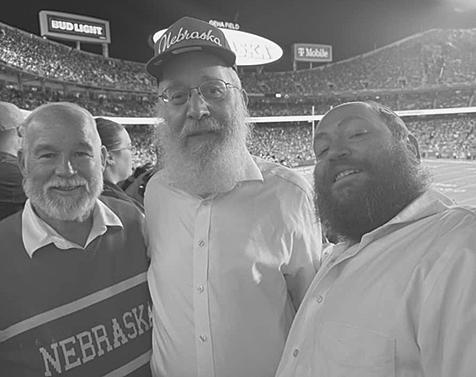
Rabbi Mendel Katzman’s Seven Lessons from Arrowhead
1. Bring the Energy. Arrowhead was louder than my bubbe’s kitchen on Passover. Every touchdown, every chant, the stadium shook. Imagine if we prayed with even half that passion! The angels wouldn’t know what hit them.
2. Stay Committed, Even After Fumbles. The Huskers made mistakes (surprise!), but they didn’t throw in the towel. They lined up, tried again, and pushed forward. Life lesson: if you forget a mitzvah or slip up, don’t bench yourself. Huddle up and keep playing.
3. Seize the Opportunity Most Husker games land on Shabbos, which is a no-go for me. But this one? A Thursday night miracle! Sometimes life throws you a rare opening — a chance to do good, help someone, or just enjoy kosher nachos at a football game. Take it before the whistle blows.
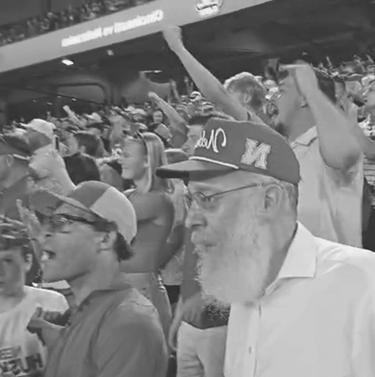
6. Celebrate Every Win. Fans went wild after every touchdown, even the scrappy ones. Shouldn’t we dance a little after lighting Shabbos candles or putting a coin in the tzedakah box? Celebration multiplies impact.
7. Keep it Joyful. Arrowhead wasn’t just loud — it was happy. Strangers high-fived, nachos were shared, and the whole place buzzed. That’s how Judaism should feel. A mitzvah with a smile beats one done with a sigh.
So yes, I went to my first Husker game. I came home hoarse, maybe a little tired, but inspired. Between Rabbi Zushe’s seven and Arrowhead’s seven, I realized football and faith aren’t so far apart: both require energy, teamwork, resilience, and a good sense of humor.
Go Big Red — and Go Big Soul.
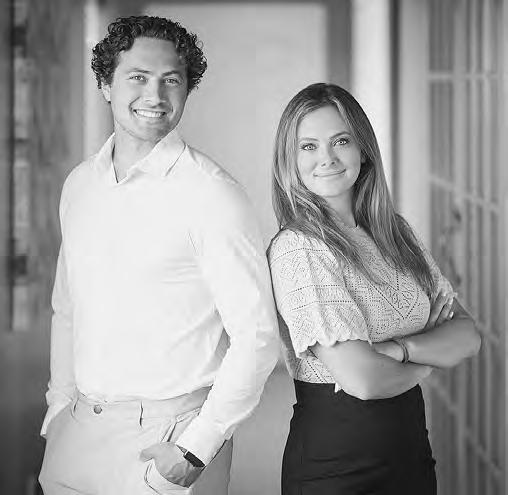

The word “Halloween” clearly betrays the holiday’s Christian roots, as the night of October 31 in Christian tradition is “All Hallows Eve”—the beginning of a period of several days when Christians remember their dead. As to the various customs that mark Halloween, there is much learned debate concerning the weight of Christian versus pagan (and especially Gaelic) influence. One thing that all Halloween scholars agree on, though, is that the people of Israel were not commanded to observe this holiday. So it was with much surprise that last year at the end of October, after picking up my grandson Lavi from his pre-K program in Herzliya, I spotted a small “Happy Halloween” sign in a doorway. I decided to investigate, and Lavi’s Mom, my daughter-in-law Avia, put me in touch with No’a Hacham, whose family celebrates Halloween. No’a emphasized two things when speaking about Halloween: that it promotes community and that it is pure fun for the kids. The community in question is not all of Herzliya but a relatively small neighborhood, centered on an elementary school and a few pre-schools. Parents who wish to participate in Halloween pre-register on a dedicated whatsapp chat. No’a says that there are over 100 families who have signed up this year (most of these live in small apartment buildings). For No’a, the simplicity of this holiday is extremely appealing: you can order costumes online (she prefers the Chinese retailer AliExpress), then you buy some candy and you’re basically all set.
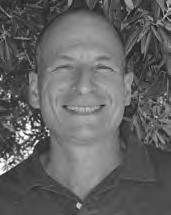
I asked No’a to respond to three possible objections to Halloween in Israel: 1) What do you say to people who object to this holiday because of its Christian and pagan roots? Answer: “Parents who do not wish to participate in Halloween are free not to participate.” 2) Jews have a Fall holiday: Succot; and Jews have a costume holiday: Purim. Why do we need Halloween? Answer: “We have just finished a two-year war, filled with a lot of pain, some of it still ongoing. Halloween is something that brings our community together, and the kids really look forward to it. It’s a siba la’mesiba [a “reason for a party”], and everyone has a lot of fun.” 3) Aren’t you concerned about the dilution of Israeli culture—Halloween is clearly a foreign import. Answer: “Through the internet, through TV, through the movies, all of us, including our kids, are exposed to foreign cultures. I don’t see a problem with borrowing from other cultures. Israeli culture is very strong; our kids learn about all of the Jewish holidays in school. We can appropriate from other cultures as we see fit; we take from Halloween what is good for us.”
How do I, Dear Reader, think about Halloween in Israel? Interestingly enough, the Jewish calendar in a way cries out for some kind of holiday during Mar-Heshvan, the Hebrew month in which Halloween falls. Though Mar-Heshvan is Akkadian for “the eighth month” (counting from Nissan, the month of Passover), Jewish tradition finds it symbolic that this holiday-less month begins with “mar,” which means “bitter” in Hebrew. So there certainly is room for a fun holiday during Heshvan (the month is usually referred to just by its shortened name). The question is: Should this holiday be Halloween? On the one hand, I am sympathetic with Noa’s attraction to the ease of observing Halloween; on the other, your typical Israeli kid already eats a huge amount of junk food without having a holiday dedicated to it. How about this compromise for families interested in Halloween: Put in the hard Israeli cultural work for the Succot holiday (by building a succah and by eating meals in it), and then you can get to eat your candy on Halloween.
Teddy Weinberger, Ph.D., made aliyah with his wife, former Omahan Sarah Jane Ross, and their five children, Nathan, Rebecca, Ruthie, Ezra, and Elie, all of whom are veterans of the Israeli Defense Forces; Weinberger can be reached at weinross@gmail.com.
The award-winning B’NAI B’RITH BREADBREAKERS speaker program currently meets Wednesdays via Zoom from noon to 1 p.m. Please watch our email for specific information concerning its thought-provoking, informative list of speakers. To be placed on the email list, contact Breadbreakers chair at gary.javitch@gmail.com

This Mezuzah case belongs to Seth Schuchman.
“1988, my parents, Sandy and Gerry Schuchman of loving memory, brought this mezuzah home from a Jewish Federation trip to Israel. They visited Jerusalem and, like so many Jews seeing it for the first time, wanted to bring back something that carried the spirit of that place.
“For years, it graced the doorway of my childhood home. It watched over our family, a quiet witness to ordinary days and countless memories. When my mom was living at the Rose Blumkin Jewish Home, and I had to sell their house, she gave me one clear instruction: “Don’t forget to take the mezuzah.” I didn’t.
“Now it hangs on the doorpost of our home. Every time we come and go, it connects my children to the grandparents they never got to meet, a link between generations, between Omaha and Jerusalem, between memory and blessing.
“It is more than a piece of metal and parchment. It is my parents’ love, their faith, and their presence, still guarding our family just as it always has.”
Are you thinking about your own case? We would love to hear from you, and see what is divinely protecting your scroll and your home. We hope you will feel inspired, and are ready to share your story with us.
For additional questions, please email Naomi Fox at nfox@jewishomaha.org, Pam Monsky at pmonsky@jew ishomaha.org, Jane Nesbit at jnesbit@ihene.org or Annette van de Kamp-Wright at avandekamp@jewishom aha.org
SABRINA SCHWARZ
When I first joined BBYO, I had no idea how much it would shape my identity, leadership skills, and sense of community. It started as a way to meet Jewish girls my age, and quickly became a meaningful journey filled with friendship, growth, and unforgettable memories. Through chapter meetings, regional events, and leadership opportunities, I learned how to step out of my comfort zone and take initiative. My time in BBYO has given me an outlet to freely practice my Judaism without limitations.
When I joined the BBYO Israel Journey, I didn’t know anyone in the group, and I did not expect it to change my life and how I view myself. But, over three weeks in the Summer of 2024, I swam in the Dead Sea, wandered the Old City of Jerusalem, and bargained in Shuk Carmel. It wasn’t the tourist moments that stuck with me, it was when a drone hit the American embassy in Tel Aviv. Our staff instructed us to go into the concrete stairwell of our hotel building. The hours that followed were quiet in a way I’d never experienced before. Something in me shifted later that day. Before the trip, I thought leadership meant being loud and or taking charge. That day, I learned it can also mean being present when times get hard. Two days prior, I visited the Nova Music Festival site in Re’im, in southern Israel, where the tragic events of Oct. 7, 2023 occurred. That moment was very raw and real. It connected me to the country and to our group. I


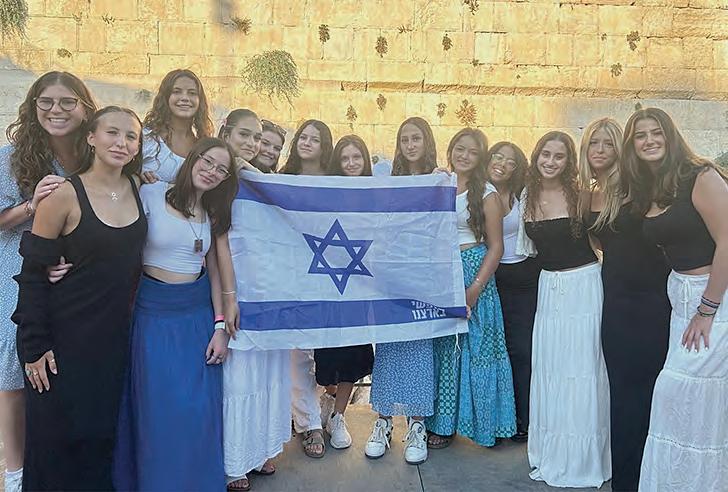
understood, first-hand, what it means to live with uncertainty. Looking back, BBYO has been far more than just a youth group. My experiences have strengthened both my Jewish identity and my confidence in who I am. The experiences I’ve had, whether laughing at chapter events or sitting in Katz at Kallah, BBYO will always be a part of who I am. The B'nai B'rith Girls have taught me that leadership isn’t only about speaking up, it’s also about standing together, listening, and being present. As I move forward in my life, I will always carry the memories, friendships, and connections that BBYO has given me. I can’t wait for the year ahead and to create new memories with my chapter.
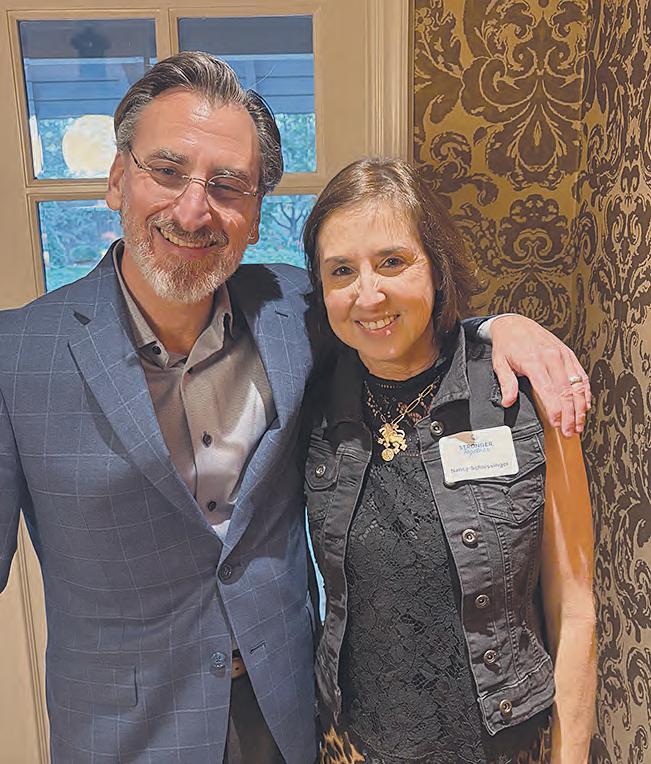
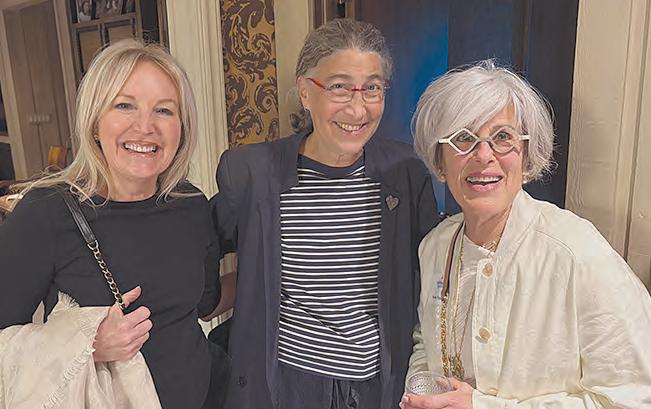
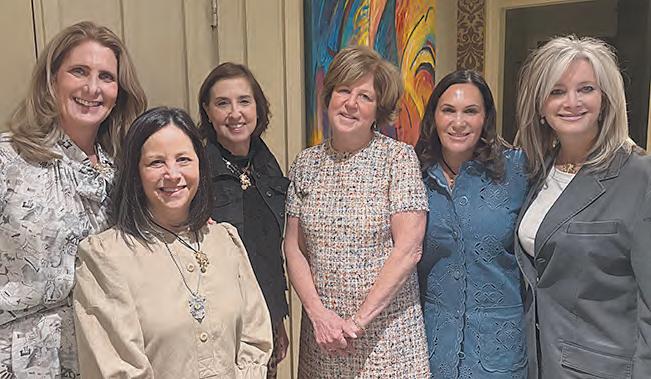
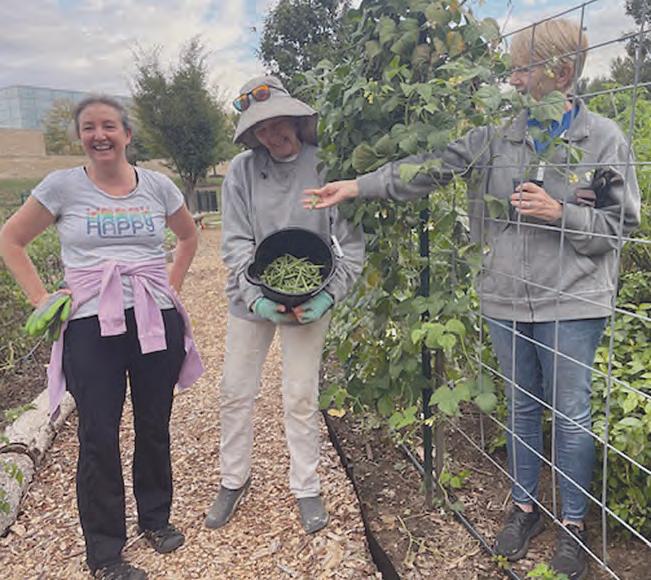
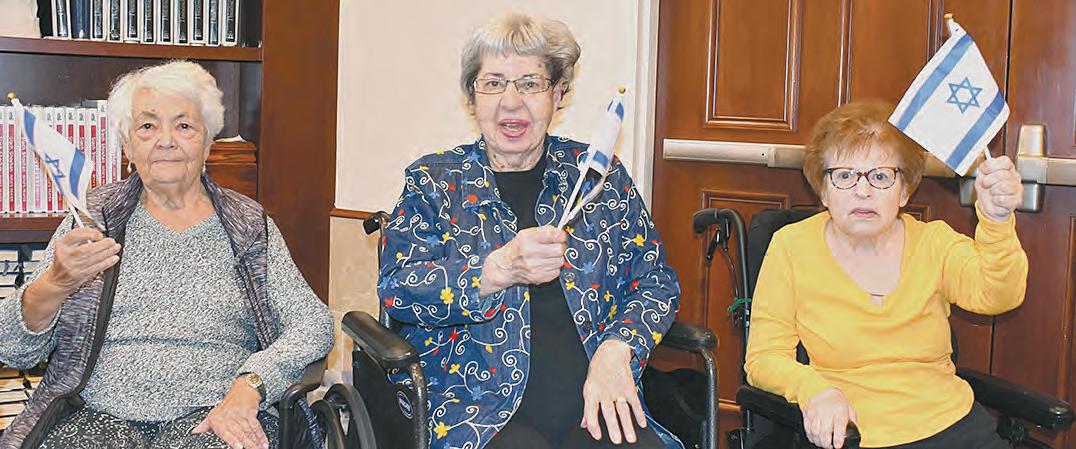
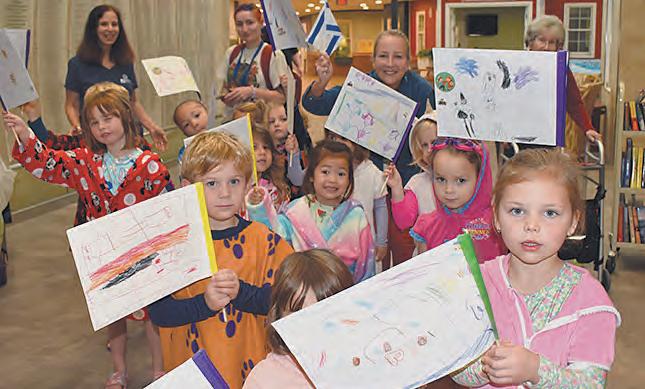

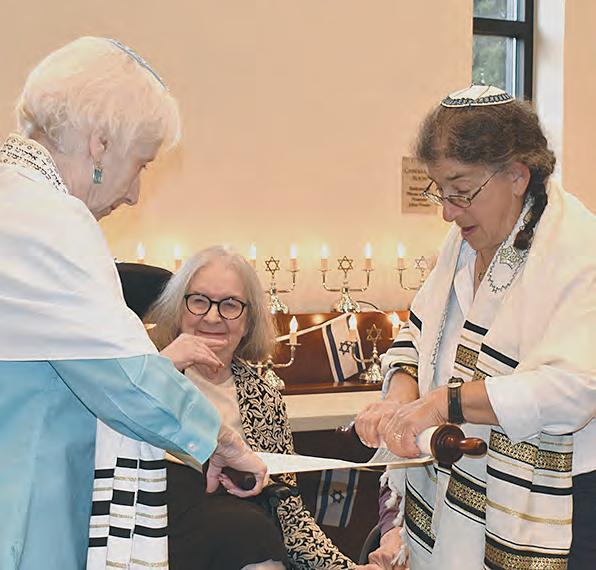
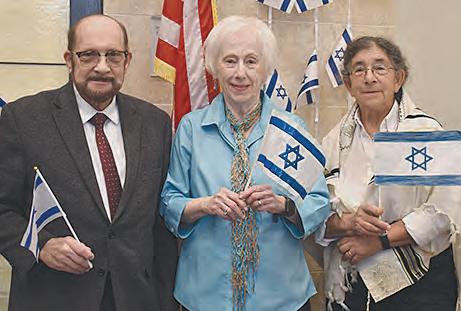
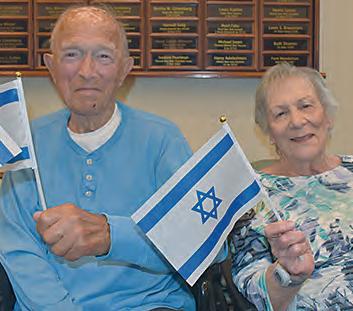
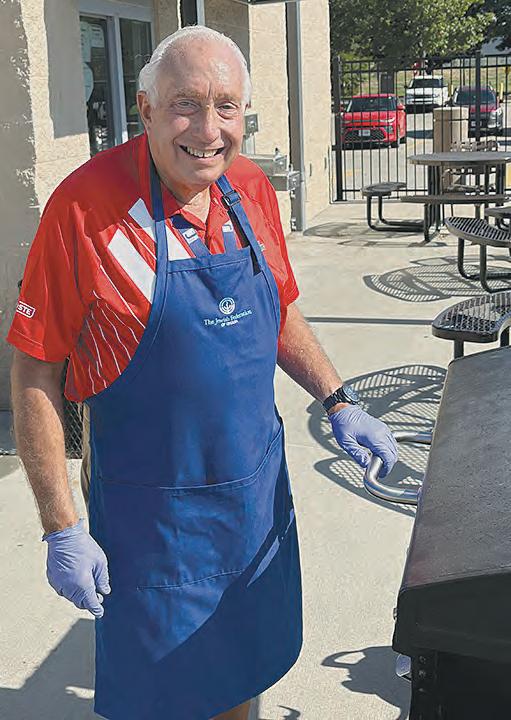
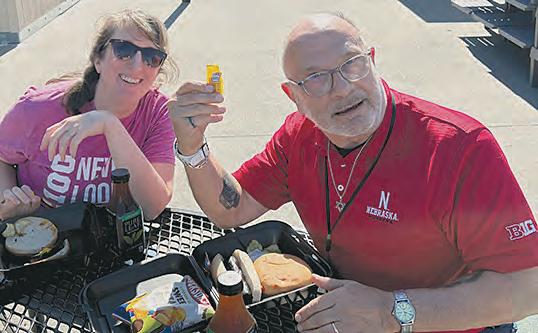
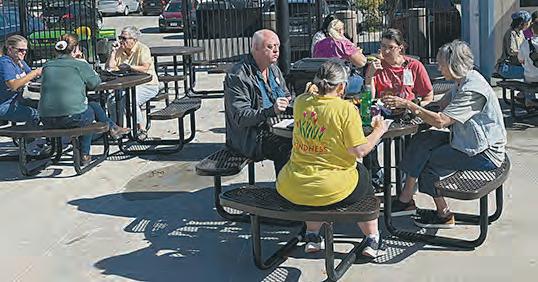
MOLLIE DAVIS
This story was first published by the Times of Israel. My time in Europe for my Holocaust History/International Criminal Law study abroad trip last summer started in a whirlwind. After a flight cancelled at 11pm when we were already on the plane, and a rebooked flight taking off at 6am, we finally landed in Amsterdam. Only to find that the airline had lost my large suitcase, which contained my entire life for the next month. Airport staff took an hour to find it, and by the time we were leaving the airport my friends and I feared we were cutting it too close to make our highly coveted Anne Frank House reservation time. When we ordered an Uber from our hotel, we expressed that we were in a rush to the driver, who broke what I’m sure were numerous traffic laws to get us there with two minutes to spare.
It was the grout in the kitchen sink that had been in the annex that got to me the most.
From Amsterdam, the Howard A. Kaiman “Nuremberg to The Hague” program would take us to The Hague, Germany, Poland and Austria. We lived primarily in Nuremberg, a few minutes down the road from Courtroom 600. We went to the Nuremberg courthouse, the former Nazi rally grounds in Nuremberg, Dachau, Auschwitz, the former Jewish ghettos of Krakow, Schindler’s Factory, and The Eagle’s Nest. It was an incredible program, led by incredible professors and I’m eternally grateful for the profound impact it had on my life. The most meaningful experience of the program for me personally, occurred on a bright sunny day at Dachau, one of the first concentration camps built by Nazi Germany in the early 1930s.
People who have been to Dachau before will know the area I’m referring to, in the back towards the woods. Trees line a path of memorial graves, and placards about how that area now thick with trim cut grass and flowers was once an execution range. As my friends and I lingered over one memorial grave in particular, a woman walking a few feet ahead of us stopped and turned around.
“Excuse me,” she said. “Do you speak English?”
When we affirmed that we did, and that we were Americans, she became choked up. Fiddling with the Bring Them Home dog-tag hanging from her neck, similar to one I wear now, she told us about her father. Her father, Roman Lubetzky was imprisoned at Dachau as a teenager. That day was the first time she’d visited the camp. I wish I could better recall our exact conversation. I remember that in exchange for her telling us about her father, and her brother Daniel who founded KIND Snacks in honor of him, we told her we were in Europe studying international criminal justice through the lens of the Holocaust. She became tearful not for the first time in our conversation, telling us about how important she believed that was. In addition, she mentioned that they’d come to Germany from Israel where they’d been visiting the site of the Nova Musical Festival massacre, and that they’d known people who were directly impacted by 10/7. Before we parted ways, she hugged all 3 of us individually, no longer the only one in tears.
The next day, sick in bed, one thought wouldn’t stop circling. If she had mentioned having just come from Israel to another group, I had the sinking feeling the response might have been colder. Before, I had imagined that anyone standing in a place like Dachau would meet a story like hers with understanding. Not being so sure of that anymore left me with feelings I wrestled with, especially as I became more acutely aware of the tension that rippled through our group whenever Israel, or the war, was mentioned.
In one of the last museum rooms at Auschwitz, a wall of stories and photographs shows where Holocaust survivors built their lives after the war. It follows that the majority of the captions mentioned Israel. As I stepped away from the wall myself, I noticed someone from the group approach the wall, this person in particular someone whose comments about Israel
had been sitting uneasily with me for weeks. I paused by the book of names, trying to watch them without being obvious. Part of me hoped, perhaps naively, that seeing the stories of Holocaust survivors rebuilding in Israel might make something shift for them. That proximity to these lives would complicate whatever certainties they’d brought with them to Europe, just as it had already done for me.
I watched as they spent a few quiet seconds glancing at the wall before moving on to something else. I couldn’t see their face, so it’s only fair to admit I can’t truly know what they felt in that moment. What I do know is that something in me tightened, and a bitter lump formed in my throat. Instead of acting on the impulse I felt to snap, I let the discomfort move through me. What it left behind was a small, restless ache that felt a little bit like judgement, and more so ache for a conversation that never happened. A conversation I think I would have tried harder to have if I could go back to that moment, in hindsight.
More recently, a little over a year since my time in Europe, I pulled out my Hebrew language Bring Them Home Now shirt to wear in celebration of the peace deal. It was a purchase from February, in a rush of emotions about the news that Shiri, Ariel and Kfir had been murdered in captivity. After I got dressed, I set off across campus to get coffee and was interrupted by a tap on my shoulder. I froze, a hundred thoughts racing through my mind as I feared my worst fears since I’d purchased the shirt were about to come true. I turned around hesitantly, expecting a camera in my face, or worse, a fist. Instead, I was met with two smiling faces.
“Do you speak Hebrew?” one of the women asked.
My answer was no, as was my answer to their next question asking if I was Jewish. Trying to clarify what I understood as confusion on their part as to why on earth I owned a shirt for Jewish hostages in a language I didn’t speak, I became quite flustered. Eventually, I managed to get out that I had purchased the shirt months ago, and that I was wearing it now because it was a good day. We had a great conversation, laughed about how because I walk so fast they’d had to chase me, hugged, and when I told them they’d made my day they shared the same sentiment. Walking away, excitedly texting my parents about the interaction, I felt emotions similar to the ones I’d felt walking away from Roman Lubetzky’s daughter at Dachau. In some sense, it felt full circle. That choosing to embark on a deeper study of the Holocaust had succeeded as serving its greater purpose in my life, making my allyship to the Jewish people an action verb.
All of these experiences over the past two years have made me feel deeply drawn to a quote from Elie Wiesel’s remarks at Yad Vashem, that I first saw someone share this summer after the Capitol Jewish Museum shooting. The quote reads; “There is a frightening character in all of Kafka’s stories. It’s always the messenger who tried to deliver the message and is unable to do so. We feel sorry for a poor messenger. But there is something more tragic than that: when the messenger has delivered the message and nothing has changed.”
In some ways, I feel as though I’ve failed as a messenger. That I should’ve talked more to the classmate I felt vexed by in Europe. That I should be doing more generally- whatever that looks like. I only have to assume, more than sharing social media posts about the hostage families. But at the same time, I wrestle with the fact that especially in today’s times, the tragedy of the message not changing anything thrives. For every social media post I share about the hostages, 5 posts come across my feed diminishing them, and it’s hard not to feel like the frightening character Elie Wiesel refers to.
It remains that I don’t quite know what to do with that. And it remains that I hold a deep love in my heart for the Jewish people. For Roman Lubetzky and his daughter who wrapped her arms around me in the woods of Dachau. For the Jewish
See On Jewish Allyship page 8
On Nov. 14 from 7:30-9:30 p.m., B’nai Israel Synagogue will welcome Beth Seldin Dotan, as their speaker and will discuss her project, Nebraska Stories of Humanity: a digital project focusing on Holocaust survivors and liberators of Nazi camps who settled in Nebraska. The entire community is welcome to our monthly second Friday Shabbat service and oneg.
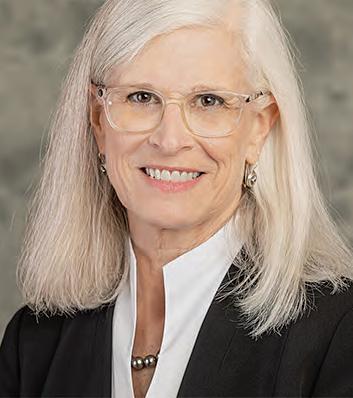
Dr. Beth S. Dotan is a Research Assistant Professor at the Norman and Bernice Harris Center for Judaic Studies at the University of Nebraska, Lincoln. Her research focuses on digital Holocaust memory.
Beth was previously the International Director at the Ghetto Fighters' House in the Western Galilee, Israel, and was the founding director of the Institute for Holocaust Education in Omaha. She has published articles about her digital humanities project: Nebraska Stories of Humanity (https://nesto riesofhumanity.unl.edu/).
Listed on the National registry of Historic places and continuously active since 1904, B'nai Israel is one of the region's oldest synagogues. In addition to hosting monthly services, arts events, and group activities, we preserve the legacy of Jewish life in Eastern Nebraska and Western Iowa. For more information, please visit our website.
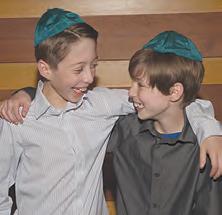



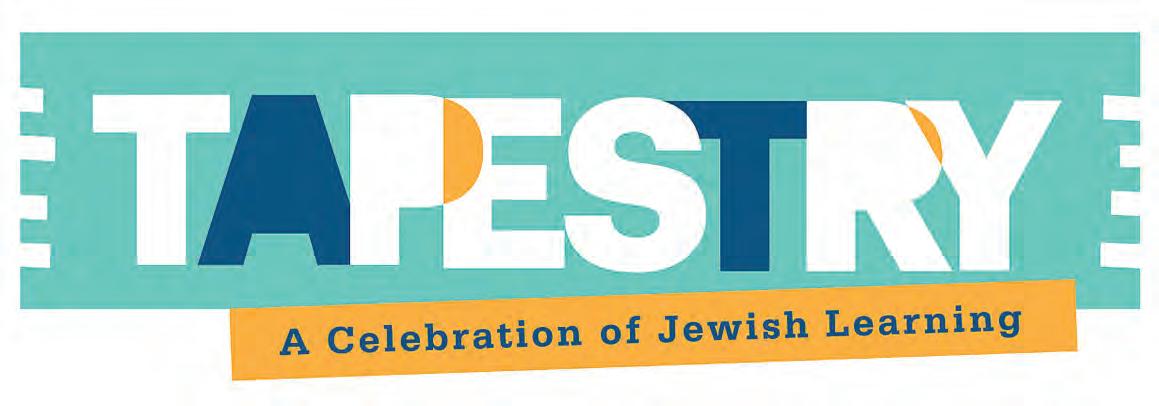
NAOMI FOX
JFO Director of Community Engagement and Education
The Jewish Federation of Omaha is thrilled to announce Tapestry: A Celebration of Jewish Learning 2026, featuring Dr. Erica Brown as our scholar-in-residence.
Dr. Brown serves as the Vice Provost for Values and Leadership at Yeshiva University and is the founding director of its Rabbi Lord Jonathan Sacks–Herenstein Center for Values and Leadership. She is one of today’s most influential voices in Jewish education, known for her ability to weave together timeless Jewish wisdom, ethical leadership, and spiritual reflection in ways that speak powerfully to modern life.
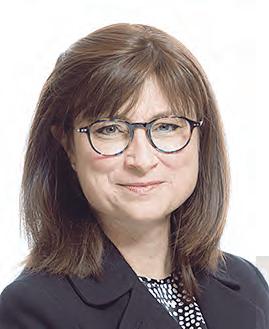
A prolific writer, Dr. Brown is the author or co-author of 15 books on leadership, spirituality, and the Hebrew Bible, includ-
ing Esther: Power, Fate and Fragility in Exile which is a National Jewish Book Award finalist, and her latest work, Kohelet and the Search for Meaning. She also hosts the daily podcast “Take Your Soul to Work”, offering brief reflections on character, purpose, and leadership.
Her writings have appeared in The New York Times, The Atlantic, Tablet, and The Jewish Review of Books, and she has received numerous honors for her contributions to Jewish learning, including the Covenant Award for Excellence in Jewish Education.
Dr. Erica Brown will visit Omaha in two installments: April 28–30 and May 31–June 7, 2026 where she will lead a variety of programs across synagogues, schools, universities, and community organizations. Each event will offer an opportunity to explore meaningful ideas, engage in discussion, and connect with others through the shared experience of Jewish learning.
Tapestry 2026 continues our community’s tradition of bringing world-class Jewish educators to Omaha to inspire, uplift, and connect us through the joy of study. More details about Dr. Brown’s programs will be announced in the coming months.
Kinkhead Optical is a family business: this father-and-son owned optical boutique is located in Millwork Commons, just north of Charles Schwab stadium. Both Alex and Steve Kinkhead have a passion for eyewear and wanted to bring unique options to Omaha. They sell independent, designer, and bespoke eyewear.
In addition, they offer glasses, sunglasses, custom eyewear, and prescription lenses, all expertly fitted by in-house optician Alex Kinkhead.
Kinkhead Optical has a selection of eyewear for every per-
sonality and look; Alex and Steve want people to walk away with glasses that are unique to their style and personality.
Kinkhead Optical also offers repairs, fittings, adjustments, custom lens shapes, frame designs, tints, sunglass clips, and more. Visit the store in Downtown Omaha’s Millwork Commons to experience luxury eyewear with Midwestern charm — where craftsmanship, comfort, and personal style come together beautifully.
You can find out more (and read customer reviews, as well as see some great examples of the eyewear) at https:// www.kinkeadoptical.com/
GRACE GILSON
JTA
When Israeli pop star Yoni Bloch created a music video in January depicting scenes of the Israeli hostages returning through the use of artificial intelligence, it was meant as a hopeful fantasy.
At the time, Bloch’s song, “Sof Tov” or “A Happy Ending,” went viral in Israel for offering optimism for the release of the nearly 100 hostages still held in Gaza. It also envisioned peace in the region accompanying the end of the war in Gaza.
Now, nine months later, after the remaining 20 living hostages in Gaza were finally reunited with their families in Israel, Bloch has remade the music video with real-life scenes that mirror those previously only seen through AI.
The new video features emotional clips of the hostage families rejoicing at the news of the ceasefire deal between Israel and Hamas in Hostages Square in Tel Aviv, as well as clips of them embracing their loved ones after two years of captivity.
ies is unknown, has stirred frustration among the Israeli public.
“Stunning and exciting but not everyone has returned yet,” wrote one user in the comments of Bloch’s post.
Others also shared that Bloch’s vision for regional peace in

“Unbelievable that the clip came true,” read the caption of a post of the two videos on Bloch’s Instagram account.
Praise for the new music video resounded in the comments of Bloch’s post, with one user commenting, “You are a genius. It looked so far away from us. Dreams really do come true.”
While the release of the living hostages has been met with celebration across Israel, the slow repatriation of the deceased hostages in Gaza, in part because the location of some of the bod-
Continued from page 7
instructor who traveled with us in Poland and framed his generational trauma in a way that helped me process my own, completely different trauma. For Shiri, Yarden and their children. For all the young people slaughtered at the Nova festival, and the families slaughtered in their homes. For the Beautiful 6. For Rachel Goldberg-Polin, who I quote in my email signature. For the women who chased me down on my university campus to ask if I spoke Hebrew, and the toddler they had with them. When I visited the Nova Exhibition in D.C. this past summer, I struggled with what to write on my note card in the memorial room. Eventually, I settled on the following.
“I never knew you but I love you. I’m so sorry the promise of Never Again failed you. From Mollie, not a Jew but also not a coward. Am Yisrael Chai.”
Mollie Davis is a law student, writer and history buff from the United States. Mollie is also an alumna of the Howard A. Kaiman "Nuremberg to The Hague” Program, where law students study international criminal law through the lens of the Holocaust and The Nuremberg Trials.
Tuesday, Nov. 11, 7 PM, CT, Wednesday, Nov. 12, 10 AM, CT,, and Friday Nov. 14, 7 PM, CT, the Old Avoca Schoolhouse in Avoca, Nebraska will be streaming three on line Klezmer Tunes Workshops for violins, violas, cellos, basses, mandolins, soprano recorders and alto recorders.
The workshop will explore tunes from our Klezmer Fiddle Tunes for Two. The handy program notes will help you decide whether each tune is good for dancing, or for particular events in a Jewish wedding, etc. Different tunes will be played at each session. We will read, play, and discuss various survival skills for these tunes.
Pre-registration is required. The cost for each workshop is $15. The cost of each optional book is $15 (includes shipping if ordered with workshop registration). To view a sample tune from the collection, and to see a list of the tunes, click on the following link: https://www.greenblattandseay. com/book_ 42_klezmer.shtml
For more information, and to register for the workshop: https://www.greenblattandseay.com/workshops_klezmer. shtml



the original music video (and his aspiration of performing alongside Taylor Swift) had not yet been realized. The new video does not include visualizations of a postwar realignment in the region, in keeping with the uncertainty about the broader implications of the ceasefire.
On Wednesday, Oct. 22, Vice President J.D. Vance met with Israeli Prime Minister Benjamin Netanyahu in Israel and said that he hoped the new ceasefire deal could serve as an “opportunity to build on the Abraham Accords.”
(Founded in 1920)
David Finkelstein
President
Annette van de Kamp-Wright
Editor
Will Fischer
Creative Director
Claire Endelman
Sales Director
Lori Kooper-Schwarz
Assistant Editor
Sam Kricsfeld
Digital support
Mary Bachteler
Accounting
Jewish Press Advisory Board
David Finkelstein, President; Margie Gutnik, Ex-Officio; Joseph Abrahams, Helen Epstein, Andrea Erlich, Ally Freeman, Dana Gonzales, Mary Sue Grossman, Hailey Krueger, Chuck Lucoff, Sara Rips, Melissa Shrago, Stewart Winograd and Bob Yaffe.
The mission of the Jewish Federation of Omaha is to build and sustain a strong and vibrant Omaha Jewish Community and to support Jews in Israel and around the world. Agencies of the JFO are: Institute for Holocaust Education, Jewish Community Relations Council, Jewish Community Center, Jewish Social Services, Nebraska Jewish Historical Society and the Jewish Press Guidelines and highlights of the Jewish Press, including front page stories and announcements, can be found online at: www.jewishomaha.org; click on ‘Jewish Press.’ Editorials express the view of the writer and are not necessarily representative of the views of the Jewish Press Board of Directors, the Jewish Federation of Omaha Board of Directors, or the Omaha Jewish community as a whole. The Jewish Press reserves the right to edit signed letters and articles for space and content. The Jewish Press is not responsible for the Kashrut of any product or establishment.
Editorial
The Jewish Press is an agency of the Jewish Federation of Omaha. Deadline for copy, ads and photos is: Thursday, 9 a.m., eight days prior to publication. E-mail editorial material and photos to: avandekamp@jewishomaha.org ; send ads (in TIF or PDF format) to: rbusse@jewishomaha.org
Letters to the Editor Guidelines
The Jewish Press welcomes Letters to the Editor. They may be sent via regular mail to: The Jewish Press, 333 So. 132 St., Omaha, NE 68154; via fax: 1.402.334.5422 or via e-mail to the Editor at: avandekamp@jewishomaha.org.
Letters should be no longer than 250 words and must be single-spaced typed, not hand-written. Published letters should be confined to opinions and comments on articles or events. News items should not be submitted and printed as a “Letter to the Editor.”
The Editor may edit letters for content and space restrictions. Letters may be published without giving an opposing view. Information shall be verified before printing. All letters must be signed by the writer. The Jewish Press will not publish letters that appear to be part of an organized campaign, nor letters copied from the Internet. No letters should be published from candidates running for office, but others may write on their behalf.
Letters of thanks should be confined to commending an institution for a program, project or event, rather than personally thanking paid staff, unless the writer chooses to turn the “Letter to the Editor” into a paid personal ad or a news article about the event, project or program which the professional staff supervised. For information, contact Annette van de Kamp-Wright, Jewish Press Editor, 402.334.6450.
Postal
The Jewish Press (USPS 275620) is published weekly (except for the first week of January and July) on Friday for $40 per calendar year U.S.; $80 foreign, by the Jewish Federation of Omaha. Phone: 402.334.6448; FAX: 402.334.5422.
Periodical postage paid at Omaha, NE. POSTMASTER: Send address changes to: The Jewish Press, 333 So. 132 St., Omaha, NE 68154-2198 or email to: jpress@jewishomaha.org
ANNETTE VAN DE KAMP-WRIGHT
Jewish Press Editor
You know that question, How are you? We ask and respond to it multiple times each day. There are our standard answers: Good, thank G-d; Fine; so-so; okay. Sometimes it’s not so good, but we only say that out loud if the person in front of us already knows the circumstances that warrant such an answer. Most often, we reply with the “good-how-areyou” we were taught as kids. It’s one word, more a greeting in itself, than a serious question.
I remember being new to America, and to the Midwest, and giving a longer answer when people asked me how I was. They would give me awkward looks, and my then-fiancé-now-husband explained that they weren’t expecting a real answer. It’s now 30 years later, and I’ve completely become accustomed to it.
What if, though, we asked the question, and actually thought about the answer? Most of all, ask it of ourselves? Trying to explain what is “good” about our life is actually a healthy exercise, and one we could certainly use at the moment. I’ll start.
As I walked around the JCC this morning to stretch my legs, I came upon a group of Early Learning Center students and their teachers, on their way to the swimming pool. The children were wearing their bathing suits and little bath robes and it’s the cutest thing ever, especially when many of them yell “good morning!” Like the dancers outside our office that regularly populate the hallway, little and big kids are a fixture around here, and it makes this an amazing place to work.
Both the ice maker in the break room and the
Editorials express the view of the writer and are not necessarily representative of the views of the Jewish Press Board of Directors, the Jewish Federation of Omaha Board of Directors, or the Omaha Jewish community as a whole.
coffee maker in the front lobby work, which means I can make myself an iced coffee and be much more productive. You might think that’s not a big deal on the “good” scale, but it is.
My car started this morning and nobody cut me off in traffic. Zero squirrels ran in front of me while driving. I hit no pot holes and all the street lights were working.
The matzah ball soup I made last Friday actually turned out pretty good. Let me explain: my husband likes to shop the sales after Passover, which is how we ended up with a stack of boxes of gluten-free matzah ball soup mix. Our family is not gluten-free, so they sat on the counter for a while. But, we finally made and ate them, which is how we now know our gluten-free friends do not have to go without this very essential food group. If you don’t think I’m being serious, I am.
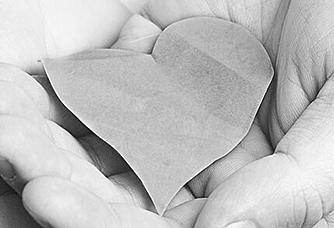
ably take walks outside. My family is healthy. I work with colleagues who are also personal friends. That means I get to see many of my friends every day. I can go on; I am starting to see why so many people keep a gratitude journal.
Dr. Yetta Krinsky, an Australian psychiatrist, wrote this about gratitude:
In this community, it is encouraged to always keep learning more about Judaism. Which is why I regularly swap lunch breaks for lessons, and rather than a separate thing, learning and studying is perfectly integrated into my work life. How is that for balance?
A few weeks ago, 20 living hostages returned home. In and of itself, that is a miracle, even when many other things have gone and continue to go wrong. Those 20 human beings are home.
The sun is shining, but it is no longer 90 degrees in the shade, which means it’s possible to comfort-
“Chassidic teaching explains that there are two broad categories of miracles: those higher than nature that shatter the natural order, and those couched within nature that work within the natural order. Of the latter, there are two groups. The first are miracles couched in nature, yet their pattern of “coincidental” events still reveals their miraculous qualities (such as the miracles of Hanukkah and Purim). The second category are miracles so completely submerged in nature that even those receiving them don’t realize it.”
She also says that we can learn to realize those miracles, by practicing gratitude every day. Once you think of one thing, other positive thoughts will automatically follow. I like to believe that, because it means when we feel weighed down by all the trouble in the Jewish world, we have the power to lighten the load, even if it is only a little.
The next time someone asks me how I am doing, I will remember to look for those miracles. I hope you do too.
My Jewish studies students aren’t talking about Israel or antisemitism.
ILANA M. HORWITZ
JTA
I first noticed something was off on the first day of class. I had given my students in my Sociology of American Jewish life course at Tulane University blank index cards, asking them to write five words they associate with American Jews. The word antisemitism didn’t appear once, and neither did Israel.
Last week, it happened again. When I asked students to choose topics from the 2020 Pew report on American Jews for small group discussions, no one chose antisemitism or Israel.
What was going on? Antisemitism dominates conversations among lay leaders, philanthropists and academics. Universities are launching new antisemitism studies centers. Yet here were 20 Jewish studies students avoiding the subject. The Hillel director confirmed he’d seen the same pattern: low attendance at events on these topics.
So I turned to my students — almost all Jewish themselves — and asked them to write anonymous reflections on this pattern. I wanted them to help me understand what felt like a significant shift from previous years, when these topics dominated classroom discussions.
Here is what I learned:
My students are exhausted. Not physically tired, but soul-weary from the constant barrage of antisemitism they encounter online. “Seeing constant antisemitism and antizionism has just made me so tired of it that it’s easier to ignore,” one wrote.
“When I’m in Jewish spaces, I prefer to focus on the positive things … because it feels like antisemitism is a battle we’re already losing.”
They see antisemitism everywhere on social media — on Instagram, TikTok, even in comment sections barely related to Jewish topics. It’s become so normalized that one student admitted they “don’t even get surprised anymore when I see crazy antisemitism.” Another described it as being talked about “on the news so much as well as talked about in everyday life” that bringing it down further in class feels redundant.
But perhaps most revealing was this: They want their Jewish studies classroom to be different.
“When I am in class, I enjoy learning about new topics and not about topics that I already talk about
and experience every single day,” one student explained. Another put it more bluntly: “I don’t want the thing I bring up when talking about Judaism to be antisemitism in a class setting, where it is something we deal with all the time outside of it.”
The Israel conversation has become even more fraught. Students described being paralyzed by the fear of “saying the wrong thing by accident.” The topic has become so contentious that it’s “a very
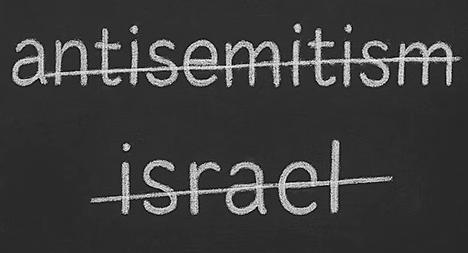
sensitive time period because of October 7th,” making people hesitant to speak up even in Jewish spaces. One student noted that discussing Israel has become “a dividing point even within the Jewish community,” creating rifts with family members and friends.
The pressure to be perfectly informed weighs heavily on them. ‘I don’t feel as educated on that, and in most contexts, I don’t want to bring it up because I don’t want to say the wrong thing by accident,’ one student confessed. They feel caught between the expectation to have authoritative opinions as Jews and their honest uncertainty about complex issues. Another described finding it ‘hard to delve into’ topics when unsure if they’re conveying accurate information. This burden of representation — the unspoken expectation that every Jewish student must be an articulate defender of their people — has become another silencing force.
I don’t take this silence as apathy, but rather about self-preservation. My students are keenly aware that even among close friends, there might be hidden antisemitism. They’ve learned to perform constant risk assessments about when and where it’s safe to express their views. As one observed, people are either intensely engaged with
these topics or “have little to no interest talking about it … and don’t feel comfortable sharing their opinions.”
What struck me most was their desire to reclaim Jewish identity from being primarily defined by hatred against Jews. These young Jews want to explore their heritage, culture, and traditions without every conversation circling back to those who despise them. They’re not in denial — they know antisemitism exists. They’re just tired of it taking up so much space in their Jewish lives.
This generational shift matters. While Jewish institutions pour resources into combating antisemitism and defending Israel — crucial work, to be clear — our young people are signaling they need something more. They need spaces where being Jewish isn’t synonymous with being embattled. They need opportunities to engage with Jewish life, learning, and culture on its own terms. My classroom revelation taught me this: If we want to engage the next generation, we need to balance necessary vigilance with joyful exploration of what makes Jewish life meaningful. Our students aren’t abandoning the fight — they’re asking for the chance to remember what we’re fighting for.
Ilana M. Horwitz is assistant professor of Jewish Studies and Sociology and Fields-Rayant chair in Contemporary Jewish Life at Tulane University. Her book God, Grades, and Graduation: Religion’s Surprising Impact on Academic Success (2022) won the ASA Sociology of Religion Distinguished Book Award.
The views and opinions expressed in this article are those of the author and do not necessarily reflect the views of JTA or its parent company, 70 Faces Media.
Announcements may be e-mailed to the Press at jpress@jewishomaha.org; or mailed to 333 So. 132 St., Omaha, NE 68154. Readers can also submit announcements -- births, b’nai mitzvahs, engagements, marriages, commitment ceremonies or obituaries -- online at www.omahajewish press.com/site/forms/. Deadlines are normally nine days prior to publication, on Wednesdays, 9 a.m. Please check the Jewish Press, for notices of early deadlines.
B’NAI ISRAEL SYNAGOGUE
618 Mynster Street Council Bluffs, IA 51503-0766
712.322.4705 www.cblhs.org
BETH EL SYNAGOGUE
Member of United Synagogues of Conservative Judaism 14506 California Street Omaha, NE 68154-1980
402.492.8550 bethel-omaha.org
BETH ISRAEL
SYNAGOGUE
Member of Union of Orthodox Jewish Congregations of America 12604 Pacific Street Omaha, NE. 68154
402.556.6288 BethIsrael@OrthodoxOmaha.org
CHABAD HOUSE
An Affiliate of Chabad-Lubavitch 1866 South 120 Street Omaha, NE 68144-1646
402.330.1800 OChabad.com email: chabad@aol.com
LINCOLN JEWISH COMMUNITY:
B’NAI JESHURUN
South Street Temple
Union for Reform Judaism 2061 South 20th Street Lincoln, NE 68502-2797
402.435.8004 www.southstreettemple.org
OFFUTT AIR
FORCE BASE
Capehart Chapel 2500 Capehart Road Offutt AFB, NE 68123
402.294.6244 email: oafbjsll@icloud.com
TEMPLE ISRAEL
Union for Reform Judaism (URJ) 13111 Sterling Ridge Drive Omaha, NE 68144-1206
402.556.6536 templeisraelomaha.com
LINCOLN JEWISH COMMUNITY:
TIFERETH ISRAEL
Member of United Synagogue of Conservative Judaism 3219 Sheridan Boulevard Lincoln, NE 68502-5236 402.423.8569 tiferethisraellincoln.org
Monthly Speaker Series Service, Friday, Nov. 14, 7:30 p.m. with guest speaker, Dr. Beth Dotan. Our service leader is Larry Blass. Everyone is always welcome at B’nai Israel!
For information about our historic synagogue, please visit our website at www.cblhs.org or contact any of our other board members: David Alloy, Renee Corcoran, Rick Katelman, Gail Kenkel, Janie Kulakofsky, Howard Kutler, Ann Moshman, Mary-Beth Muskin, Debbie Salomon and Sissy Silber. Handicap Accessible.
Services conducted by Rabbi Steven Abraham and Hazzan Michael Krausman.
IN-PERSON AND ZOOM MINYAN SCHEDULE:
Mornings on Sundays, 9:30 a.m.; Mondays and Thursdays, 7 a.m.; Evenings on Sunday-Thursday, 5:30 p.m.
FRIDAY: Kabbalat Shabbat 6 p.m. at Beth El & Live Stream.
SATURDAY: Shabbat Morning Services, 10 a.m. at Beth El and Live Stream; Jr. Congregation (Grades K12), 10 a.m.; Havdalah, 6:55 p.m. Zoom Only.
SUNDAY: BESTT (Grades K-7), 9:30 a.m.; Adult B’nai Mitzvah, 9:30 a.m. with Hazzan Krausman; B’nai Mitzvah Parents Meeting, 12:15 p.m.
TUESDAY: Mishneh Deot & Sefer HaMiddot, 10:30 a.m. with Rabbi Abraham.
WEDNESDAY: BESTT (Grades 3-7), 4 p.m.; Hebrew High (Grades 8-12), 6 p.m.
THURSDAY: Tai Chi, 1:30 p.m. with Beth Staenberg; Circles of Time” Artwork Installation by Ellie Greenspoon 6 p.m.; Yair Rosenberg 7 p.m.
FRIDAY-Nov. 7: Pre-Neg & Tot Shabbat, 5:30 p.m.; Kabbalat Shabbat 6 p.m. at Beth El & Live Stream.
SATURDAY-Nov. 8: Bar Mitzvah of Ben Cohn 10 a.m. at Beth El and Live Stream; Jr. Congregation (Grades K-12), 10 a.m.; Havdalah, 5:45 p.m. Zoom Only.
Please visit bethel-omaha.org for additional information and service links.
FRIDAY: Nach Yomi, 6:45 a.m.; Shacharit, 7 a.m.; Mincha/Kabbalat Shabbat/Candlelighting, 6:03 p.m.
SATURDAY: Shabbat Kollel, 8:30 a.m.; Shacharit, 9
a.m.; Tot Shabbat, 10:30 a.m.; Youth Class, 10:45 a.m.; Soulful Torah, 5:05 p.m. with Rabbi Geiger; Mincha, 5:50 p.m.; Kids Activity/Laws of Shabbos, 6:20
p.m.; Havdalah, 7:03 p.m.
SUNDAY: Shacharit 9 a.m.; Mincha/Ma’ariv 5 p.m.
MONDAY: Nach Yomi, 6:45 a.m.; Shacharit, 7 a.m.; Monday Mind Builders, 4 p.m.; Mincha/Ma’ariv 5 p.m.
TUESDAY: Nach Yomi, 6:45 a.m.; Shacharit, 7 a.m.; Mincha/Ma’ariv, 5 p.m.
WEDNESDAY: Nach Yomi, 6:45 a.m.; Shacharit, 7
a.m.; Mincha/Ma’ariv, 5 p.m.
THURSDAY: Nach Yomi, 6:45 a.m.; Shacharit, 7 a.m.; Mincha/Ma’ariv 5 p.m.
FRIDAY-Nov. 7: Nach Yomi, 6:45 a.m.; Shacharit, 7
a.m.; Mincha/Kabbalat Shabbat/Candlelighting, 4:55 p.m.
SATURDAY-Nov. 8: Shabbat Kollel, 8:30 a.m.; Shacharit 9 a.m.; Tot Shabbat 10:30 a.m.; Youth Class, 10:45 a.m.; Soulful Torah, 3:55 p.m. with Rabbi Geiger; Mincha 4:40 p.m.; Kids Activity/Laws of Shabbos 5:10 p.m.; Havdalah, 5:55 p.m.
Please visit orthodoxomaha.org for additional information and Zoom service links.
Join classes via Zoom. Go to ochabad.com/academy. For more information or to request help, please visit www.ochabad.com or call the office at 402.330.1800.
FRIDAY: Shacharit 8 a.m.; Lechayim, 5:30 p.m., go to ochabad.com/lechayim to join; Candlelighting, 6:02 p.m.
SATURDAY: Shacharit 10 a.m. followed by Kiddush and Cholent; Shabbat Ends, 7:01 p.m.
SUNDAY: Sunday Morning Wraps, 9 a.m.
MONDAY: Shacharit 8 a.m.; Personal Parsha 9:30 a.m. with Shani; Intermediate Biblical Hebrew Grammar, 10:30 a.m. with David Cohen; Parsha Reading, 6 p.m. with David Cohen; Translating Words of Prayer, 7 p.m. with David Cohen.
TUESDAY: Shacharit 8 a.m.; Aramaic Grammar, 10 a.m. with David Cohen; Intermediate Biblical Hebrew Grammar, 6 p.m. with David Cohen; Introductory Biblical Hebrew Grammar, 7 p.m. with David Cohen
WEDNESDAY: Shacharit, 8 a.m.; Introductory Biblical Hebrew Grammar, 10:30 a.m. with David Cohen; Parsha Reading, 11:30 a.m. with David Cohen.
THURSDAY: Shacharit, 8 a.m.; Advanced Biblical Hebrew Grammar, 11 a.m. with David Cohen; Talmud Study, noon; Introduction to Alphabet, Vowels & Reading Hebrew, 6 p.m. with David Cohen; Code of Jewish Law Class, 7 p.m.
FRIDAY-Nov. 7: Pegisha at Crown Heights, NY, contact Mushka at mushka@ochabad.com for more info; Shacharit, 8 a.m.; Lechayim, 4:30 p.m., go to ochabad.com/lechayim to join; Candlelighting, 4:54 p.m.
SATURDAY-Nov. 8: Pegisha at Crown Heights, NY; Shacharit 10 a.m. followed by Kiddush and Cholent; Shabbat Ends, 5:54 p.m.
LINCOLN JEWISH COMMUNITY: B’NAI JESHURUN & TIFERETH ISRAEL
Services facilitated by Rabbi Alex Felch. All services offered in-person with live-stream or teleconferencing options.
FRIDAY: Liam Owens Bar Mitzvah; Shabbat Candlelighting, 6:06 p.m.; Kabbalat Shabbat Service, 6:30-7:30 p.m. led by Rabbi Alex at SST.
SATURDAY: Liam Owens Bar Mitzvah; Torah Study will resume on Nov. 8; Havdalah, 7:04 p.m.
SUNDAY: LJCS Classes, 9:30 a.m. at TI; Men’s Bike/ Coffee Group, 10:30 a.m. at The Mill Coffee & Bistro, 2021 Transformation Dr #1350, Lincoln. For more information or questions please email Al Weiss at al
SHELLY FOX
JSO Director of Jewish Senior Outreach
Local “caring professionals” were the lucky recipients of a couple special hours interacting with and learning from Rabbi Steve Leder recently. This event was part of the launch of the “Being a Good Ancestor” series.
Therapists, social workers, nurses, clergy and others in the professional fields that support individuals and families through life transitions, attended a lunch and learn event on Monday, Sept. 8.
Rabbi Leder led an interactive Ethical Wills workshop to enhance skills in working with clientele. An ethical will is a non-legal document where a person shares their life lessons, values, and personal stories with loved ones, often as a legacy gift. It is a way to pass on wisdom, beliefs, and hopes for the future.
All those in attendance had the opportunity to consider what is of deep value and important in their own lives. The personal stories and thoughts shared led up to each attendee beginning the process of writing their own ethical will.
This event was extremely moving for many participants who shared their feedback:
“Thank you for inviting me! I’ve never heard of an ethical will. I love the idea for myself and for certain clients. I’m so glad I went!”
“What a wonderful speaker. I feel so lucky to have gone.”
“I was overwhelmed with the impact this had on me…it was definitely time well spent.”
“I really can’t find the words to express how grateful I am, thank you so much for thinking of me and inviting me. Today was really one of the most beautiful days of my life. I really needed to hear what the Rabbi had to say today, thank you so much.”
bertw801@gmail.com; Teacher Meeting, noon; Radloff/Sparks Wedding, 4 p.m. at TI.
WEDNESDAY: LJCS Hebrew School, 4:30-6 p.m. at TI.
FRIDAY-Nov. 7: Shabbat Candlelighting, 4:58 p.m.; Kabbalat Shabbat Service, 6:30-7:30 p.m. led by Rabbi Alex at SST.
SATURDAY-Nov. 8: Shabbat Morning Service, 9:30 a.m. led by Rabbi Alex at TI; Torah Study noon on Parashat Vayera via Zoom; Havdalah, 5:57 p.m.
FRIDAYS: Virtual Shabbat Service, 7:30 p.m. every first and third of the month at Capehart Chapel. Contact TSgt Jason Rife at OAFBJSLL@icloud.com for more information.
In-person and virtual services conducted by Rabbi Benjamin Sharff, Rabbi Deana Sussman Berezin, and Cantor Joanna Alexander.
FRIDAY: Drop-In Mah Jongg, 9 a.m. In-Person; Village Walking Group, 10 a.m. In-Person; Classic Shabbat Service, 6 p.m. In-Person & Zoom
SATURDAY: Torah Study, 9:15 a.m. In-Person & Zoom; Shabbat Morning Service, 10:30 a.m. In-Person & Zoom.
SUNDAY: Grades PreK-7, 9:30 a.m. In-Person; Temple Israel welcomes Camp Sabra, 9:30 a.m. In-Person.
WEDNESDAY: Yarn It, 9 a.m. In-Person; Grades 36, 4:30 p.m. In-Person; Hebrew Chai: Grades 8-12, 6 p.m. In-Person.
THURSDAY: The Zohar: Thursday Morning Class 11 a.m. with Rabbi Sharff — In-Person & Zoom; Masterpieces & Mediterranean: a Triple Chai Plus Event 4 p.m. RSVP Required; Adult B’nai Mitzvah Prep Class, 7 p.m. In-Person.
FRIDAY-Nov. 7: Drop-In Mah Jongg, 9 a.m. In-Person; Village Walking Group, 10 a.m. In-Person; Tot Shabbat, 5:45 p.m. In-Person; Shabbat B’yachad Service, 6 p.m. In-Person & Zoom
SATURDAY-Nov. 8: Torah Study, 9:15 a.m. In-Person & Zoom; Shabbat Morning Service, 10:30 a.m. InPerson & Zoom. Please visit templeisraelomaha.com for additional information and Zoom service links.
UPDATED OBITUARY CHANGES As of July 1, 2025, Obituaries in the Jewish Press are free of charge.
For questions, please email avandekamp@ jewishomaha.org. Obituaries in the Jewish Press are included in our print edition as well as our website at www.omahajewishpress.com
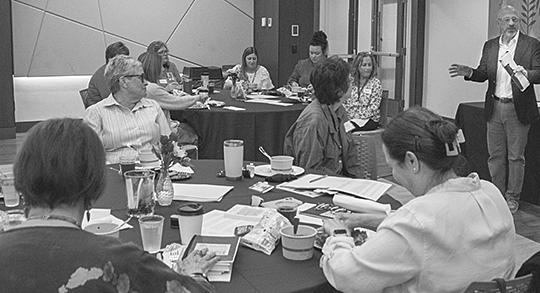
The next event in the ‘Being a Good Ancestor’ series is: Living Your Legacy: Creating a Meaningful Estate Plan hosted by JFO Foundation, on Sunday, Nov 9, at 10:30 a.m.
To RSVP please use the QR code or contact Jennifer Goodman at jgoodman@jewishomaha.org or 402.334.6459.
The Jewish Federation of Omaha (CEE department), Jewish Family Service, and Jewish Federation of Omaha Foundation is grateful for the funding we have received from The Shirley and
Leonard Goldstein Supporting Foundation, The Milton S. and Corinne N. Livingston Foundation Fund, The CHESED Fund, Special Donor Advised Fund and the Ann Goldstein Education Fund.
The generosity of these funds allows the Jewish Federation, Foundation and Jewish Family Service to provide meaningful, relevant, and important educational content for our community.
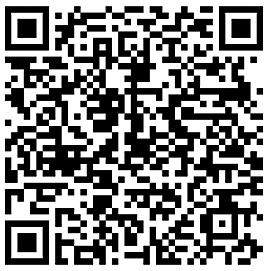
Dear Editor,
For more than 70 years, Henry Monsky Lodge of B’nai B’rith has sponsored an informational program called Bread Breakers for its members and the public. The programs are regarded as a public service. The Lodge does not take a stand on partisan political issues or candidates.
In the late 90’s, I chaired a session of Bread Breakers. Jon Christensen was invited to be the guest speaker. At that time, he was serving as a member of Congress from Nebraska’s Second Congressional District (Omaha and parts of eastern Nebraska).
We knew each other because of previous political forums – I, a liberal Democrat; Jon, a very conservative Republican. We met in the parking lot of Highland Country Club, often a site for Bread Breakers. We exchanged pleasant greetings and sat next to each other at the luncheon.
Then, as chairman of the meeting, I officially introduced Jon. I thanked him for taking time from his busy schedule to speak to us about national affairs in Washington. Jon’s response startled me. While acknowledging our acquaintanceship, he said that he had hoped that I would be more accepting of his political views so that we would not be “enemies.” He was disappointed that I had not sufficiently “mellowed” in his direction.
At the conclusion of Jon’s remarks, I once again thanked him for speaking. However, I opined that the record had to be corrected. I stated that in public debate, Americans should not refer to those with whom they politically disagree as “enemies.”
There was a very prolonged period of silence in the room, and Jon appeared uncertain as to what he should do. Finally, after staring at me, Jon said, “You are right!” Then Jon, who was at
least a half foot taller than I, grabbed me and lifted my feet off the floor. It took every bit of my strength to keep a straight face. Jon was once characterized by a liberal magazine as the “dimmest bulb” serving in Congress. Fair or not, Jon has been out of politics for many years.
Are there lessons to be learned from this experience? “You shall not take vengeance nor bear any grudge against your countryman.” Leviticus 19.18
J. RIEKES
STEVEN
BAR MITZVAH
BEN COHN
Ben Cohn, son of Shane and Jess Cohn, will celebrate his Bar Mitzvah on Saturday, Nov. 8, 2025 at Beth El synagogue.
Ben is a seventh grader at Elkhorn Ridge Middle School, where he is an honor roll student, plays the french horn in band and is a receiver on the football team.
In his free time, Ben is an avid fisherman, archer and artist.
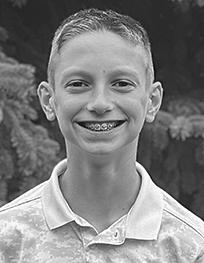
For his mitzvah project, Ben is volunteering to clean up parks, lake and ball fields in the local community.
He has three younger siblings, Ellen, Mara and Sam, for whom he has set a great example.
LEE YARON
JTA
This story was excerpted and adapted from the book 10/7: 100 Human Stories, winner of the National Jewish Book Awards’ 2024 Jewish Book of the Year and The Natan Fund’s 2025 Notable Book Award. Read more at www.omahajewishpress.com
Bipin Joshi wasn’t supposed to be sent to the Gaza border. At 23, the tall young man carried his family’s aspirations on his shoulders — he was their firstborn son, their vessel of promise.
Home was Kanchanpur in Nepal’s fertile westernmost reaches, where the Mahakali River nourishes borderlands renowned for abundant harvests. There, Bipin first envisioned transforming agricultural knowledge into prosperity — he dreamed of a banana plantation that would secure his family’s future.
Israel was meant to be just a brief detour on his path to building something lasting back home.
When he enrolled in the Learn and Earn program that purported to offer students from Africa and Asia the opportunity of earning relatively high wages while taking classes in hightech agriculture. Bipin had been assured placement in Israel’s heartland. But his assignment was changed at the last moment, and he was placed at Kibbutz Alumim, two miles from the Gaza border. Yet any disappointment he felt gave way to relief: He would be working with Himachal Kattel, his best friend and roommate from college in Nepal. In Alumim, the two Nepali young men resumed their familiar schooldays routine, sharing a modest room where, after exhausting days of fieldwork, they would unwind with cold beers and songs from home.
A month later, Himachal and Bipin were some of the only students left alive from their cohort, nearly 3,000 miles from their home in Nepal, when Hamas attacked Alumim.Through the lemon and orange orchards, dozens of Hamas terrorists rampaged the Kibbutz, shooting indiscriminately. They killed 22 Thai and Nepali citizens, kidnapped eight, and injured a few more.
On Oct. 3, 2023, an earthquake struck Nepal, and many were concerned for their families. Padam Thapa called home anxious on October 6. His sister-in-law, Mekhu Adhikari, told him about the frightening aftershocks. Ganesh Nepali urged his elder brother to look after their parents and stay safe, as their family home had sustained structural damage.
During two years of war, Bipin’s family lived in agonizing uncertainty, not knowing whether their son was alive or dead. They were disappointed through two ceasefires, when Thai citizens who’d been taken hostage were released, and as government officials expressed “grave concern” for his life. Clinging to hope, they did everything in their power to raise public awareness about their son, a young man trapped in a foreign conflict. Their worst fears were confirmed when Bipin’s corpse
was returned to Israel, on the first day of a new ceasefire that brought with it the release of all 20 living hostages in Gaza.
On Monday Oct. 20, Bipin made his journey home. The first stop was a ceremony at Ben Gurion Airport, where a top government official praised his heroism and addressed him directly, saying, “I am sorry. It shouldn’t have ended this way.”
Then, Bipin’s body was flown to Kathmandu, where Prime Minister Sushila Karki draped Nepal’s flag over it during a brief ceremony at the airport. And from there, his coffin was taken to his village where on Tuesday morning his body was cremated in a ceremony on the banks of the Mahakali River.
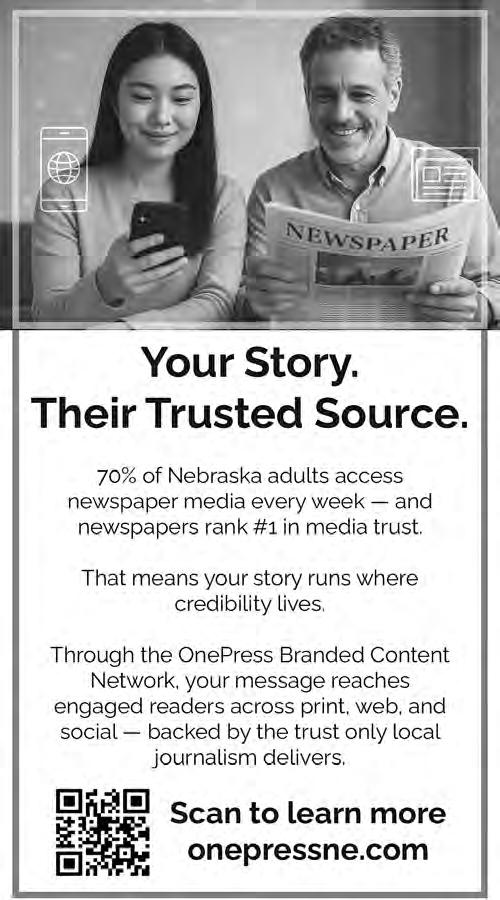



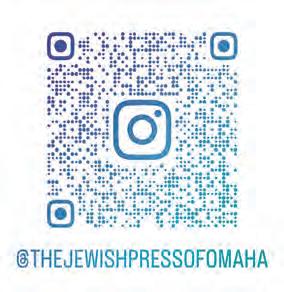
ANNOUNCEMENT
CLASSIFIED ADVERTISING in over 150 newspapers. Reach thousands of readers for $225/25 word ad. Contact the Jewish Press or call 1-800-369-2850.
HELLO NEBRASKA! Introducing www.nepublicnotices.com, a new public notice website presented as a public service by all Nebraska newspapers. Free access, fully searchable – because democracy depends upon open government and your right to know.
BANKRUPTCY RELIEF! Help stop Creditor Harassment, Collection Calls, Repossession and Legal Actions! Speak to a Professional Attorney and Get the Help You NEED! Call NOW 844-215-3629
AFFORDABLE PRESS Release service. Send your message to 155 newspapers across Nebraska for one low price! Call 1-800369-2850 or www.nebpress.com for more details.
SWITCH AND save up to $250/year on your talk, text and data. No contract and no hidden fees. Unlimited talk and text with flexible data plans. Premium nationwide coverage. 100% U.S. based customer service. For more information, call 1-877-768-5892
PORTABLE OXYGEN Concentrator? May be covered by Medicare! Reclaim independence and mobility with the compact design and long-lasting battery of Inogen One. Free information kit! Call 855-385-3580.
PREPARE FOR power outages today with a Generac Home Standby Generator. Act now to receive a FREE 5-Year warranty with qualifying purchase. Call 1-402-899-2584 today to schedule a free quote. It’s not just a generator. It’s a power move.
DOES YOUR basement or crawl space need some attention? Call Thrasher Foundation Repair! A permanent solution for waterproofing, failing foundations, sinking concrete and nasty crawl spaces. FREE Inspection & Same Day Estimate. $250 off ANY project with code GET250. Call 1-844-958-3431
THE BATHROOM of your dreams in as little as 1 day. Limited Time Offer - $1000 off or No Payments and No Interest for 18 months for customers who qualify. BCI Bath & Shower. Many options available. Quality materials & professional installation. Senior & Military Discounts Available. Call Today! 1-855-451-2244 WANTED TO BUY WE BUY 8,000 cars a week.
JFO Library Specialist
Juvenile:
Just Say Welcome! by Emily Raij
Tilly loves having company. One day, Tilly's mom says a family that has just arrived from Iraq will be staying with them for a while until they get settled in the community. "Just say 'welcome!'" her mom says. "Sometimes that's all it takes for strangers to become friends." A man from synagogue brings over clothes for the children and a neighbor brings a pot of stew that smells "just like home" to the new arrivals. The Iraqi boy, Youssef, teaches Tilly's brother soccer ball tricks. When an apartment becomes ready for the family, Tilly feels a little sad. "Thank you for welcoming strangers into your home," Youssef's mom says. "But you're not strangers," says Tilly. "We're friends now and you'll always be welcome here.
"Adult:
Carol King: She Made the Earth Move by Jane Eisner
Carole King’s extraordinary career has defined American popular music for more than half a century. Born in New York City in 1942, she shaped the soundtrack of 1960s teen culture with such songs as Will You Love Me Tomorrow, one of many Brill Building classics she wrote with her first husband, Gerry Goffin. She was a leading figure in the singer-songwriter movement of the 1970s, with dozens of Billboard Hot 100 hits and music awards — her 1971 album Tapestry won a record four Grammys. Yet she struggled to reconcile her fame with her roles as a wife and mother and retreated to the backwoods of Idaho, only to emerge in recent years as a political activist and the subject of the Tony-winning Broadway show Beautiful: The Carole King Musical.
Journalist and author Jane Eisner places King’s life in histor-
ical and cultural context, revealing details of her humble beginnings in Jewish Brooklyn, the roots of her musical genius, her four marriages, and her anguish about public life. Drawing on numerous interviews as well as historical and contemporary sources, this book brings to life King’s professional accomplishments, her personal challenges, and her lasting contributions to the great American songbook.
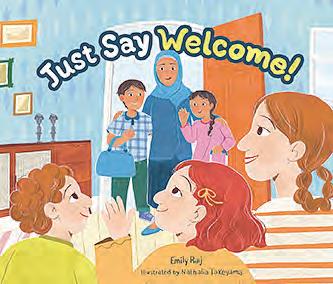

and corporations with immense wealth and lobbying power on top, demagogues on the rise, and increasing inequality fueling anger and hatred across the country.





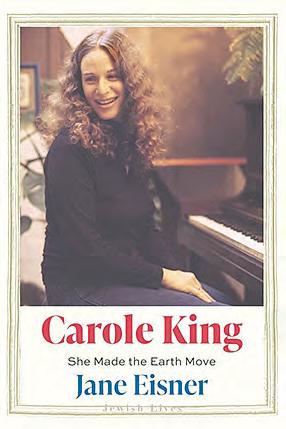









Robert B. Reich
A thought-provoking, principled, clear-eyed chronicle of the culture, politics, and economic choices that have landed us where we are today — with irresponsible economic bullies
Nine months after World War II, Robert Reich was born into a united America with a bright future — which went unrealized for so many as big money took over our democracy. His encounter with school bullies on account of his height — 4'11" as an adult — set him on a determined path to spend his life fighting American bullies of every sort. He recounts the death of a friend in the civil rights movement; his political coming of age witnessing the Berkeley free speech movement; working for Bobby Kennedy and Senator Eugene McCarthy; experiencing a country torn apart by the Vietnam War; meeting Hillary Rodham in college, Bill Clinton at Oxford, and Clarence Thomas at Yale Law. He details his friendship with John Kenneth Galbraith during his time teaching at Harvard, and subsequent friendships with Bernie Sanders and Ted Kennedy; and his efforts as labor secretary for Clinton and economic advisor to Barack Obama. Ultimately, Reich asks: What did his generation accomplish? Did they make America better, more inclusive, more tolerant? Did they strengthen democracy? Or did they come up short?
Reich hardly abandons us to despair over a doomed democracy. With characteristic spirit and humor, he lays out how we can reclaim a sense of community and a democratic capitalism based on the American ideals we still have the power to salvage.

